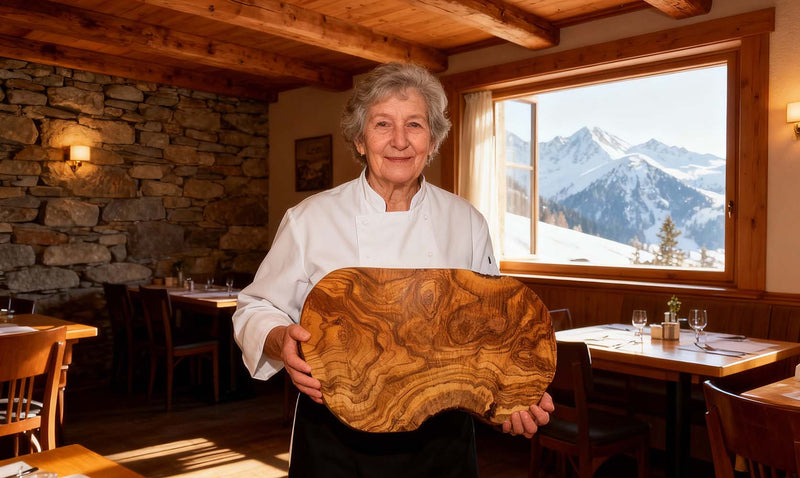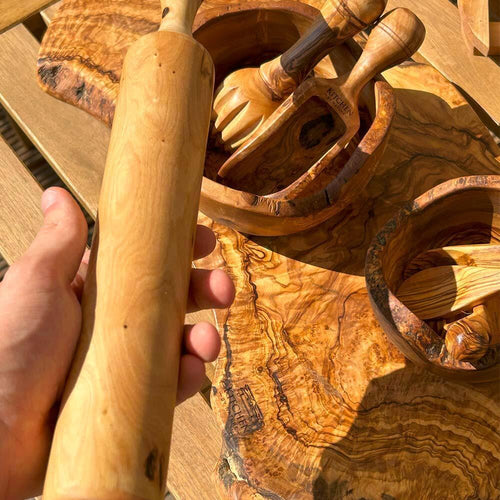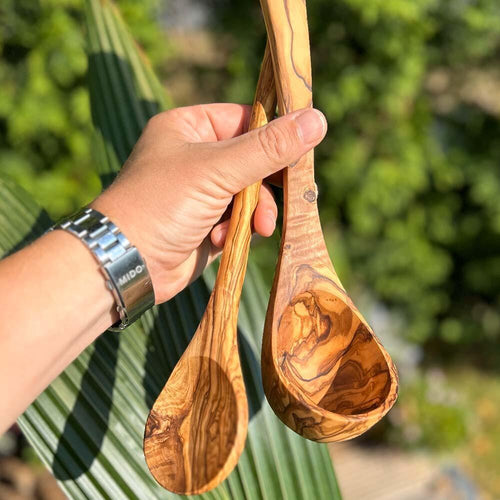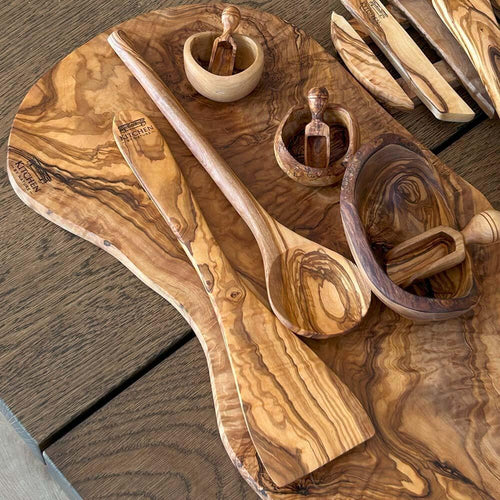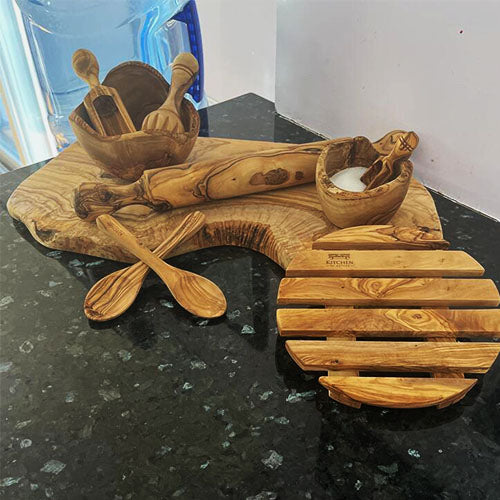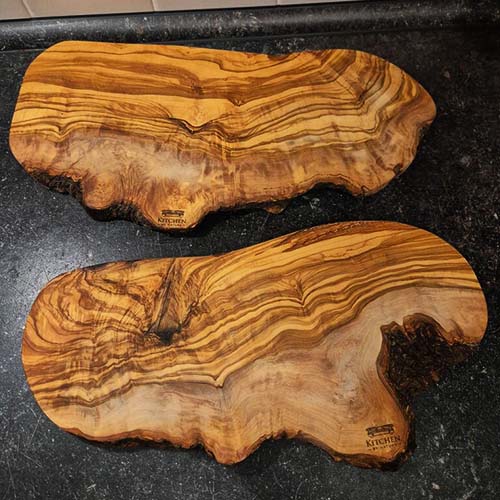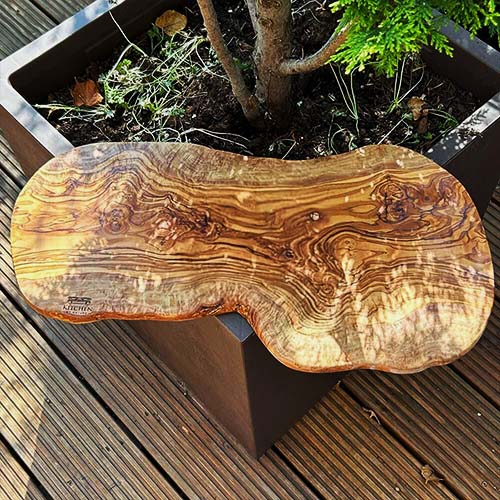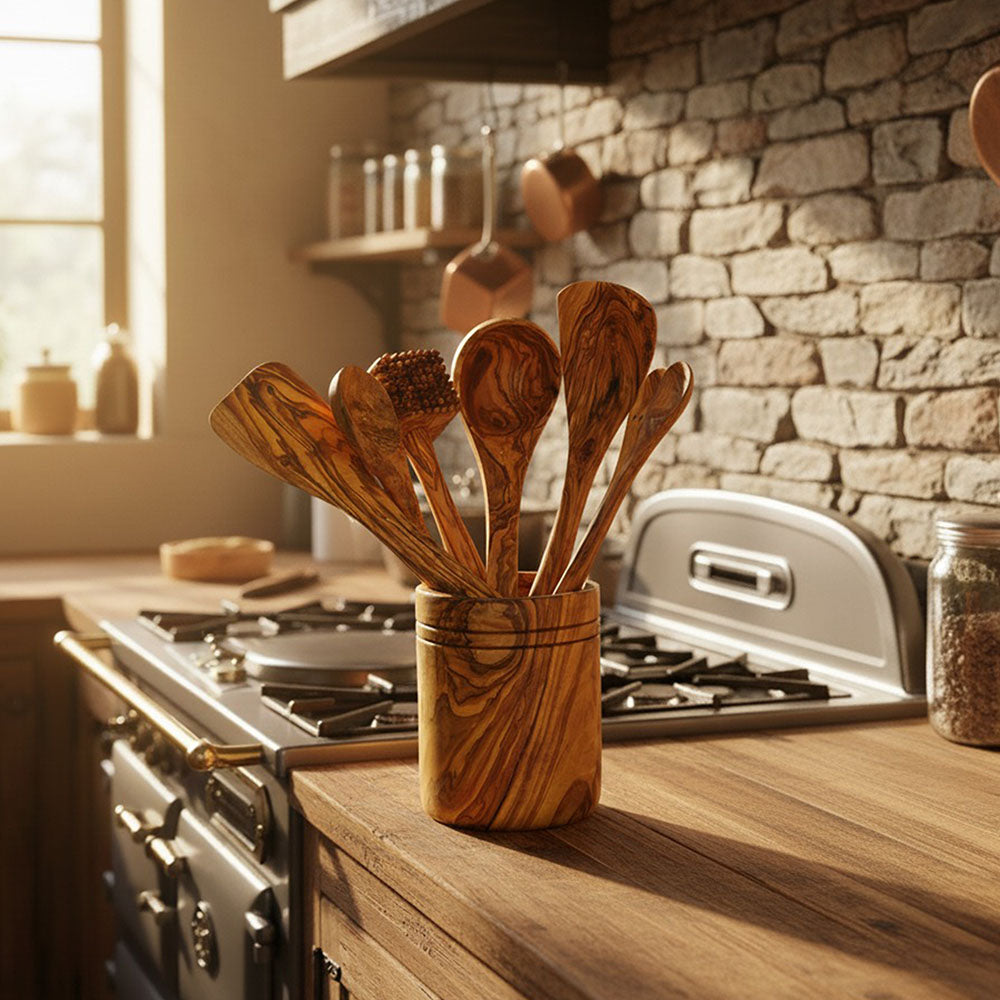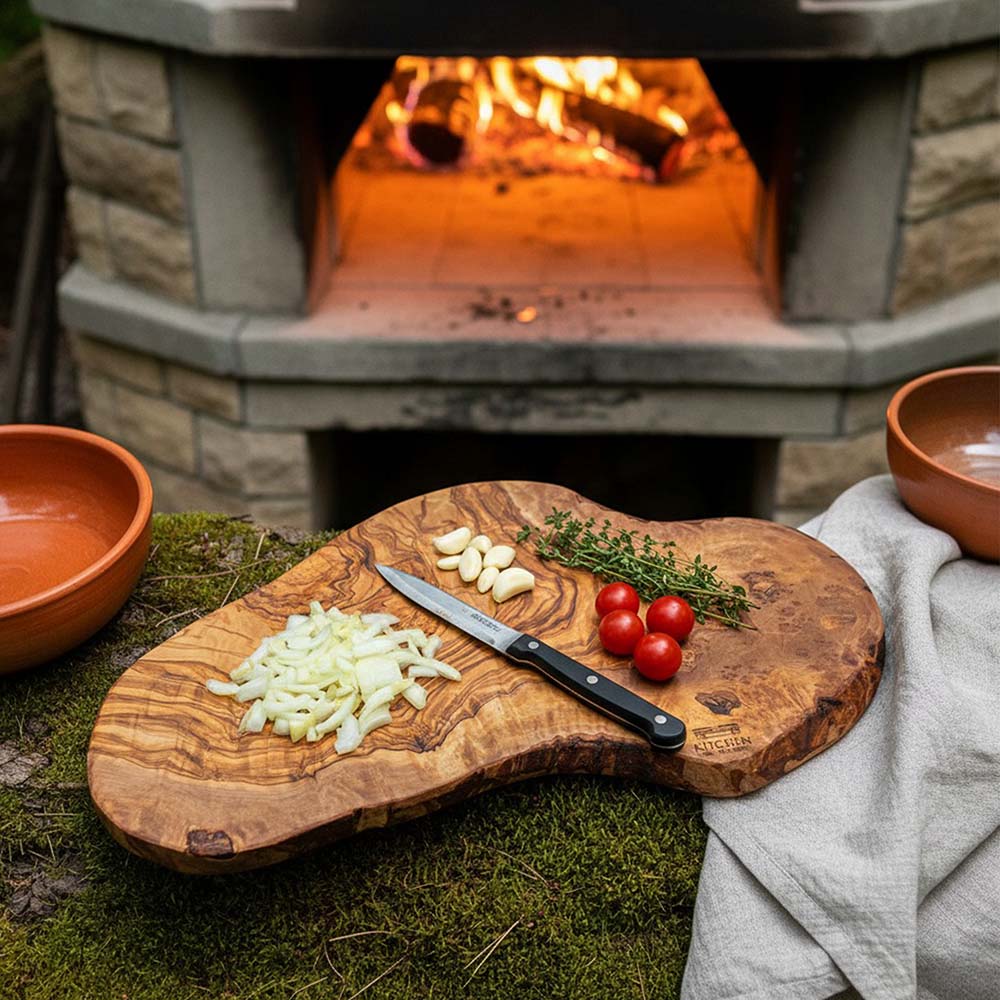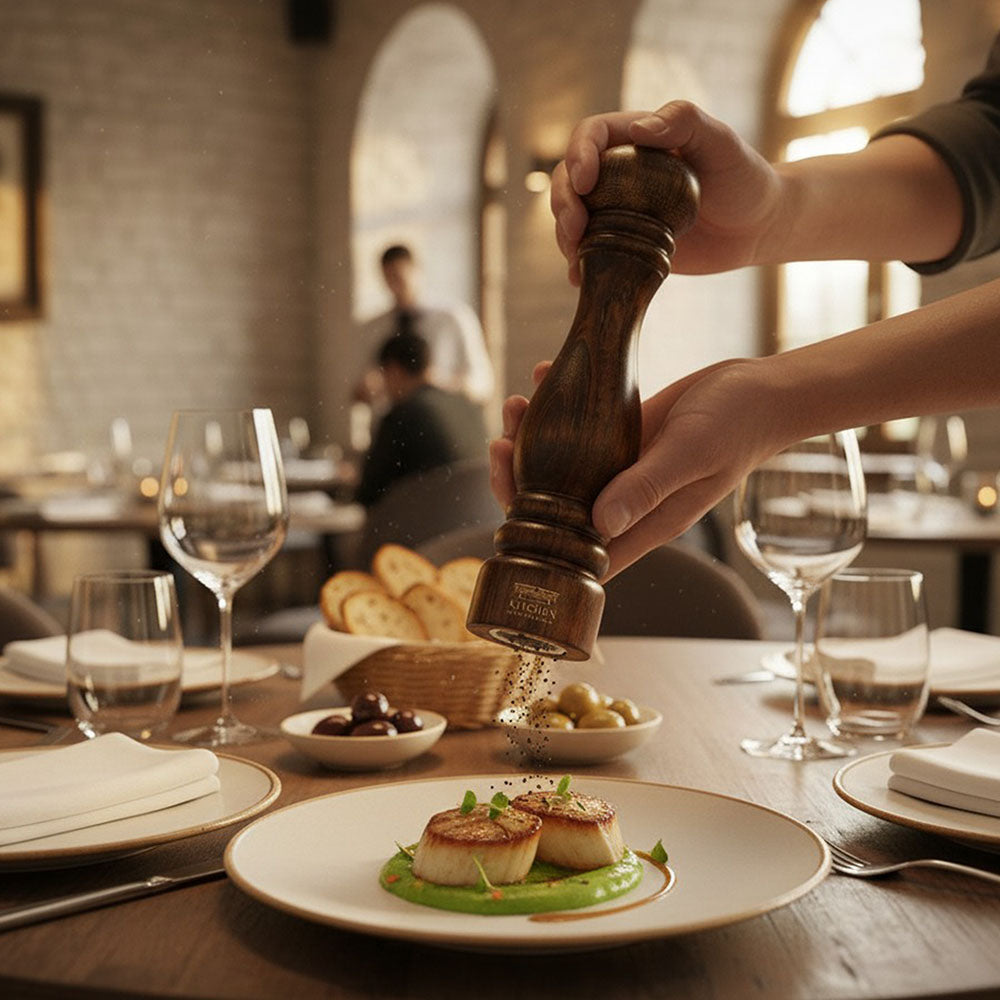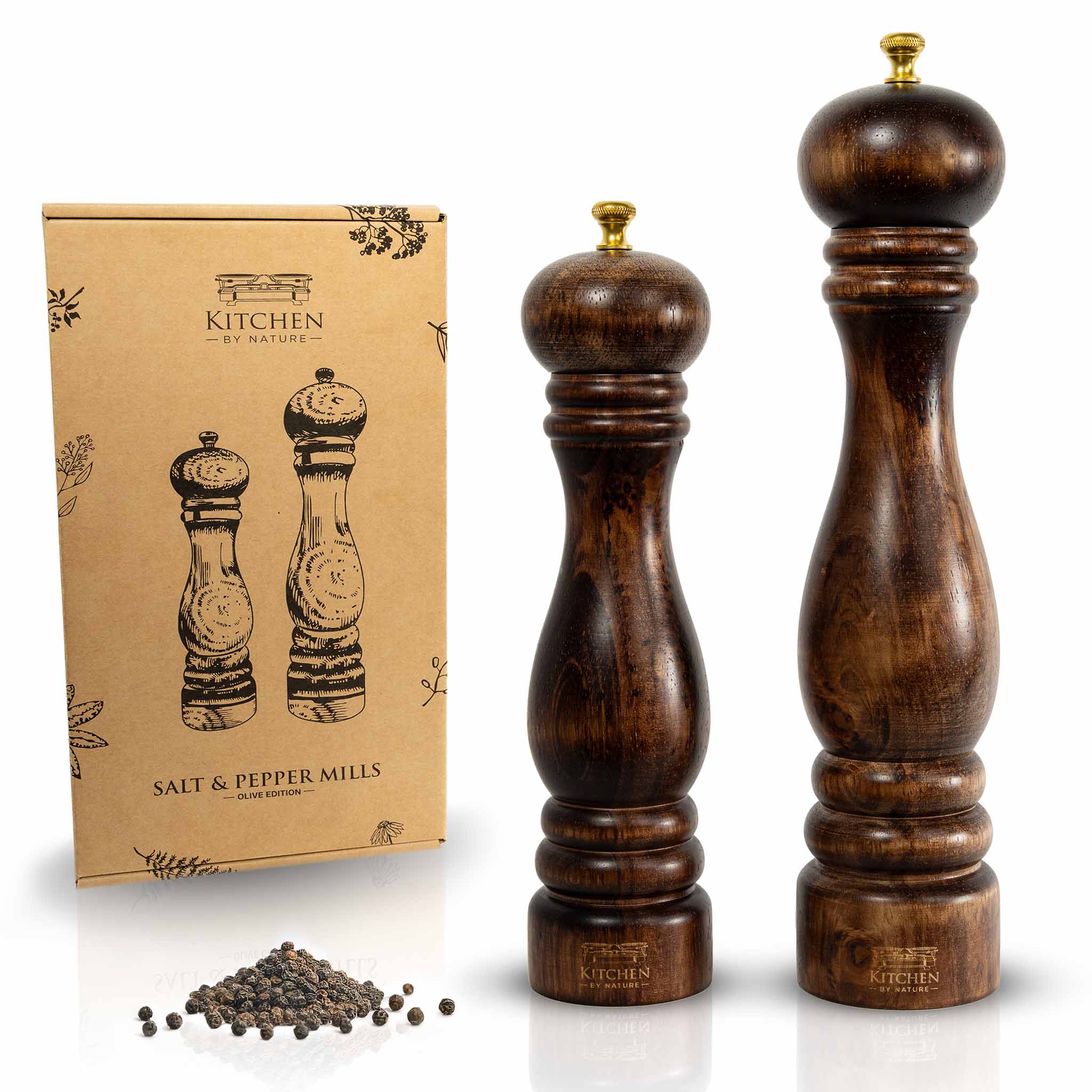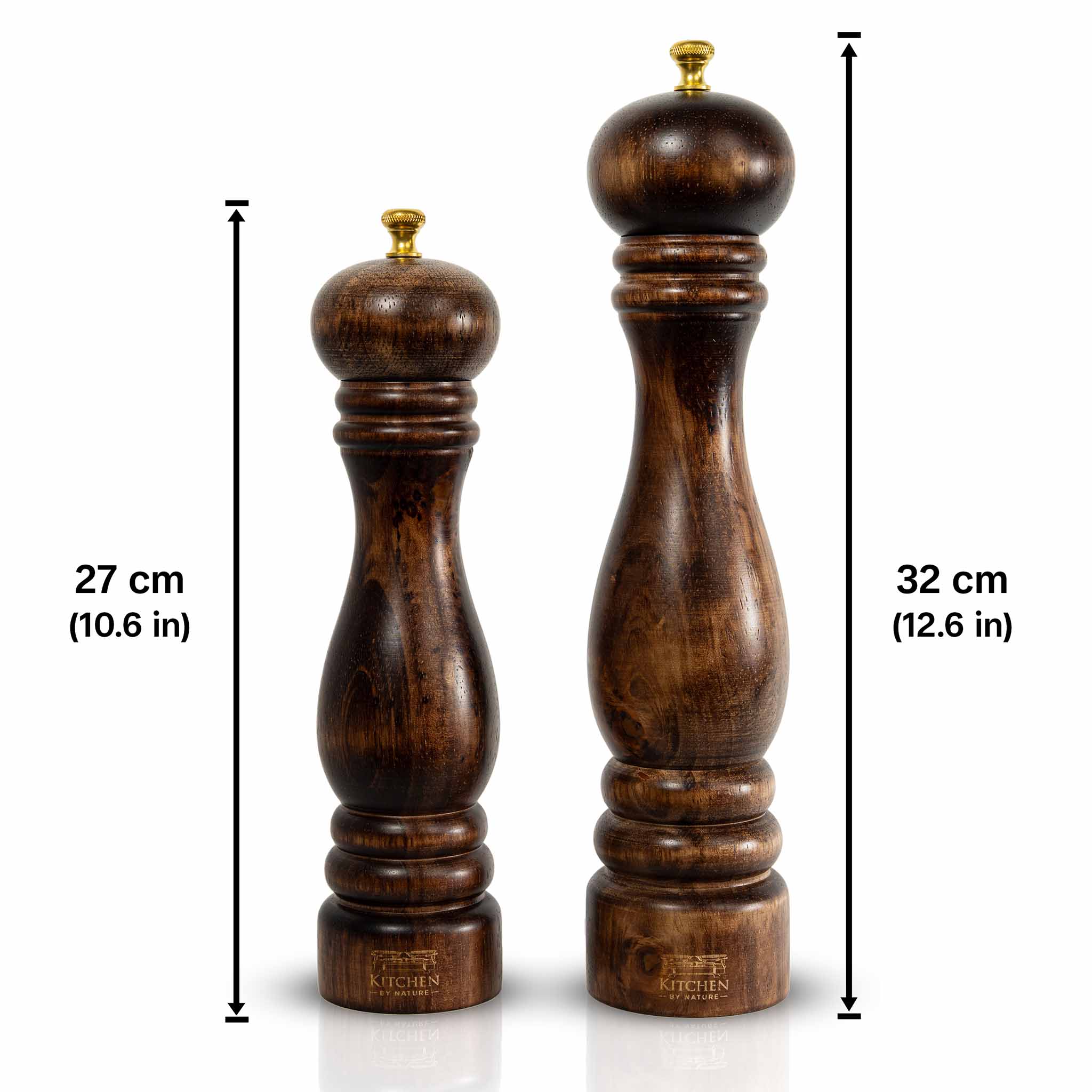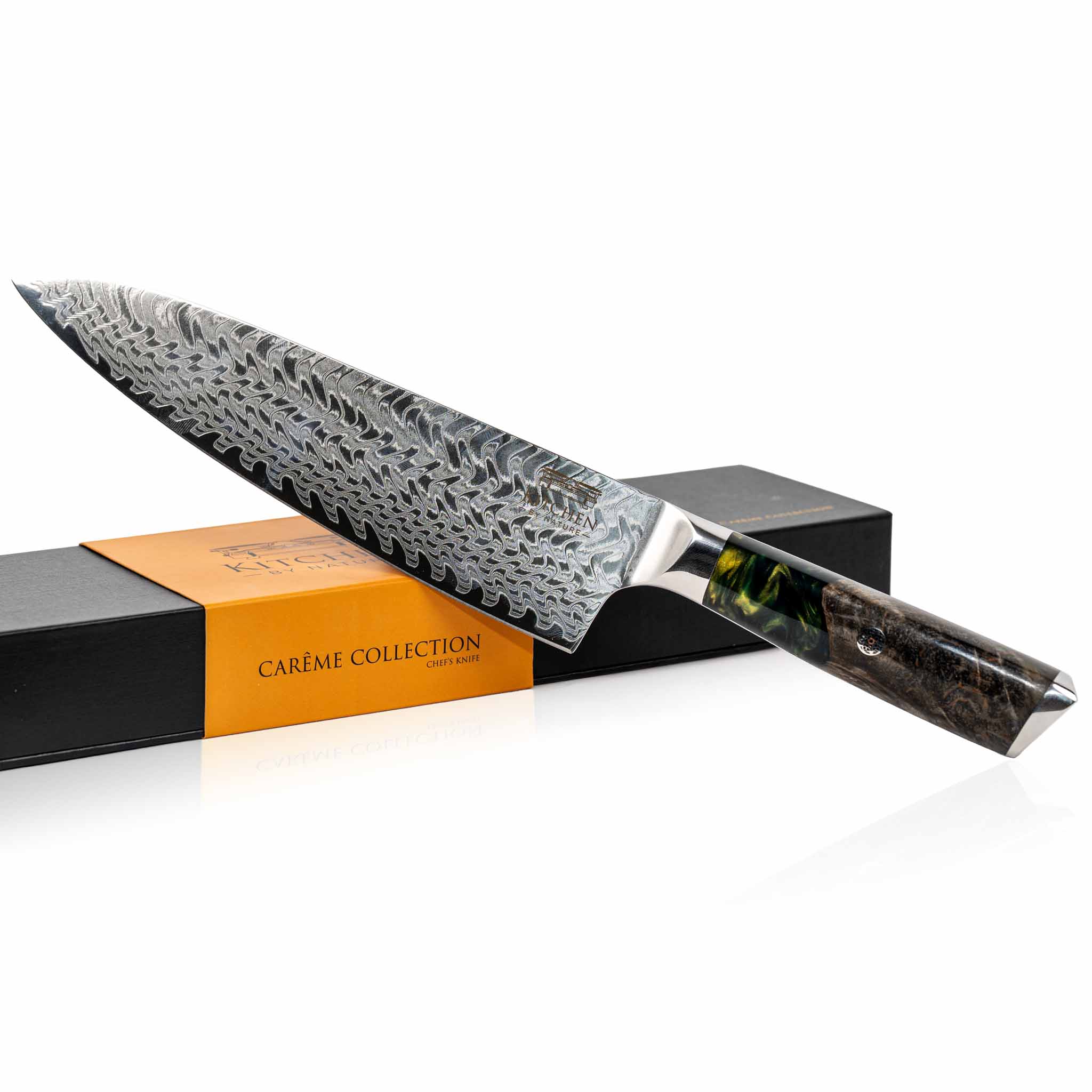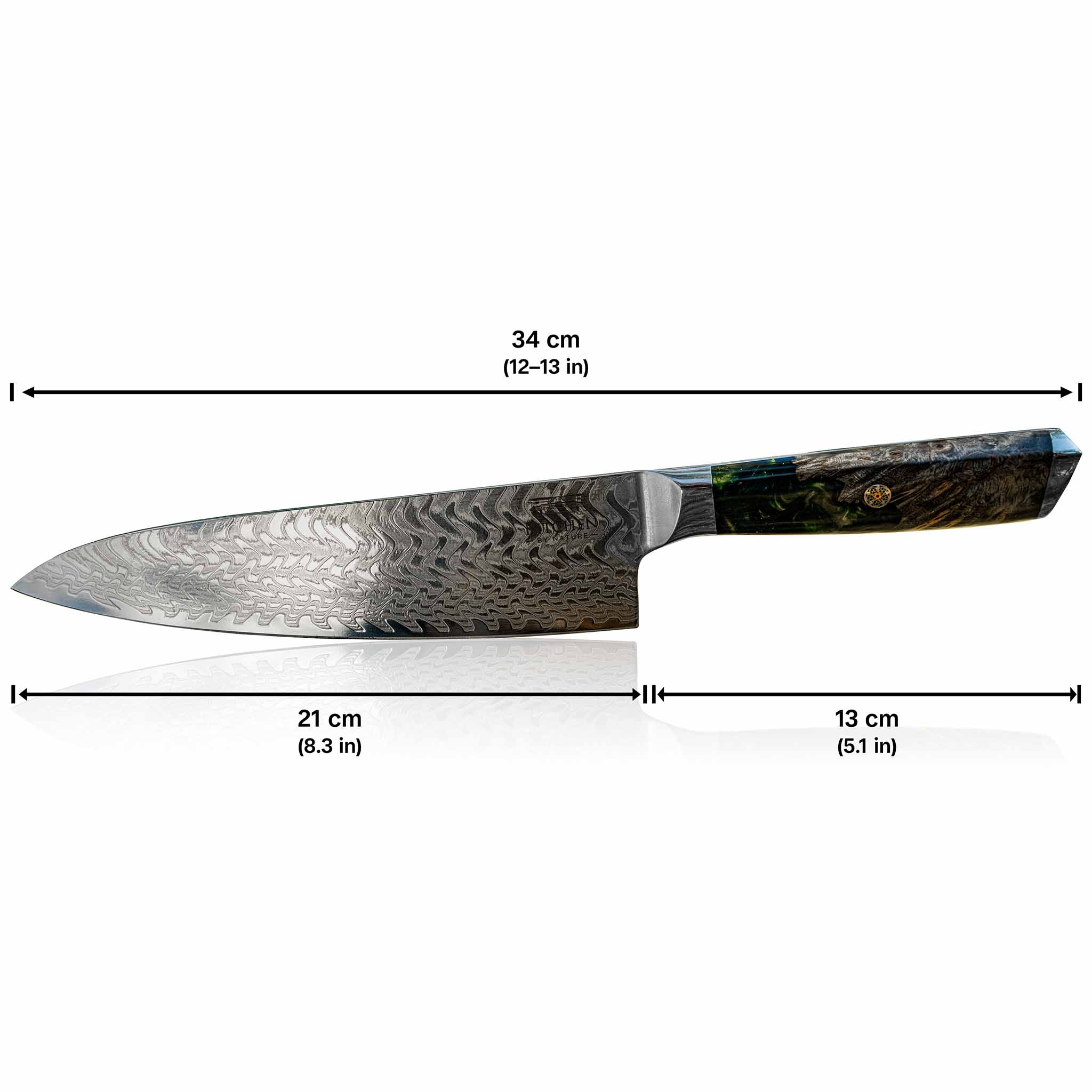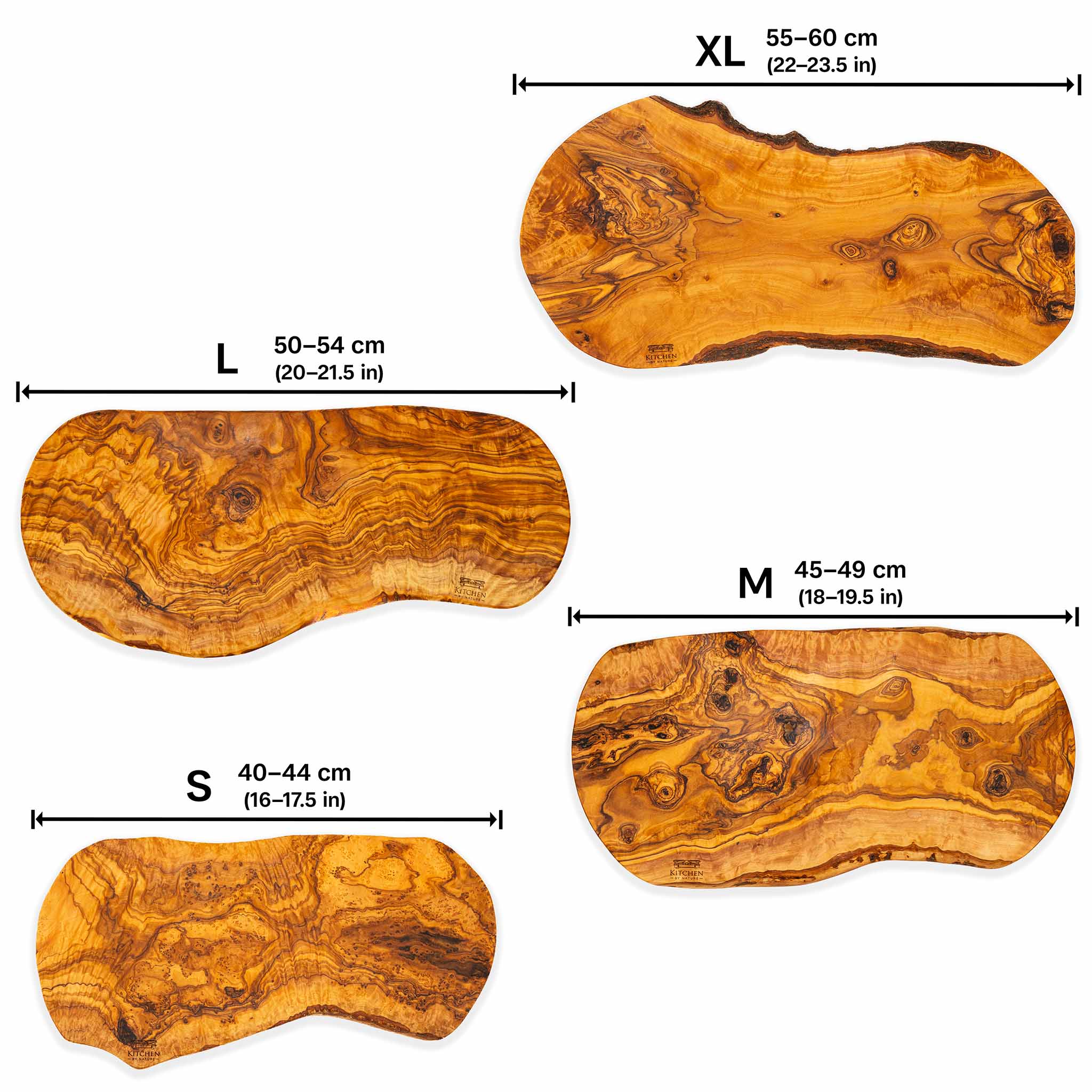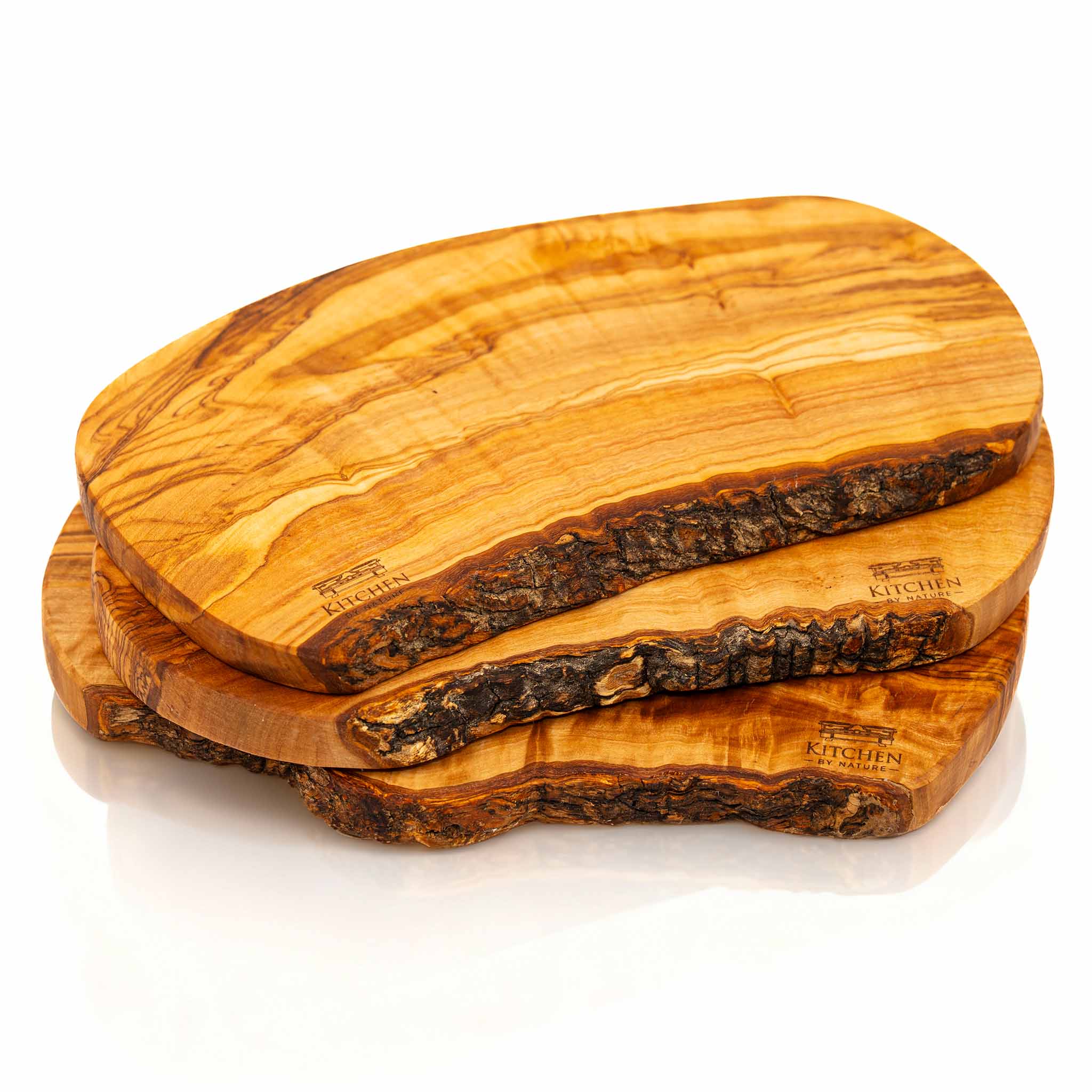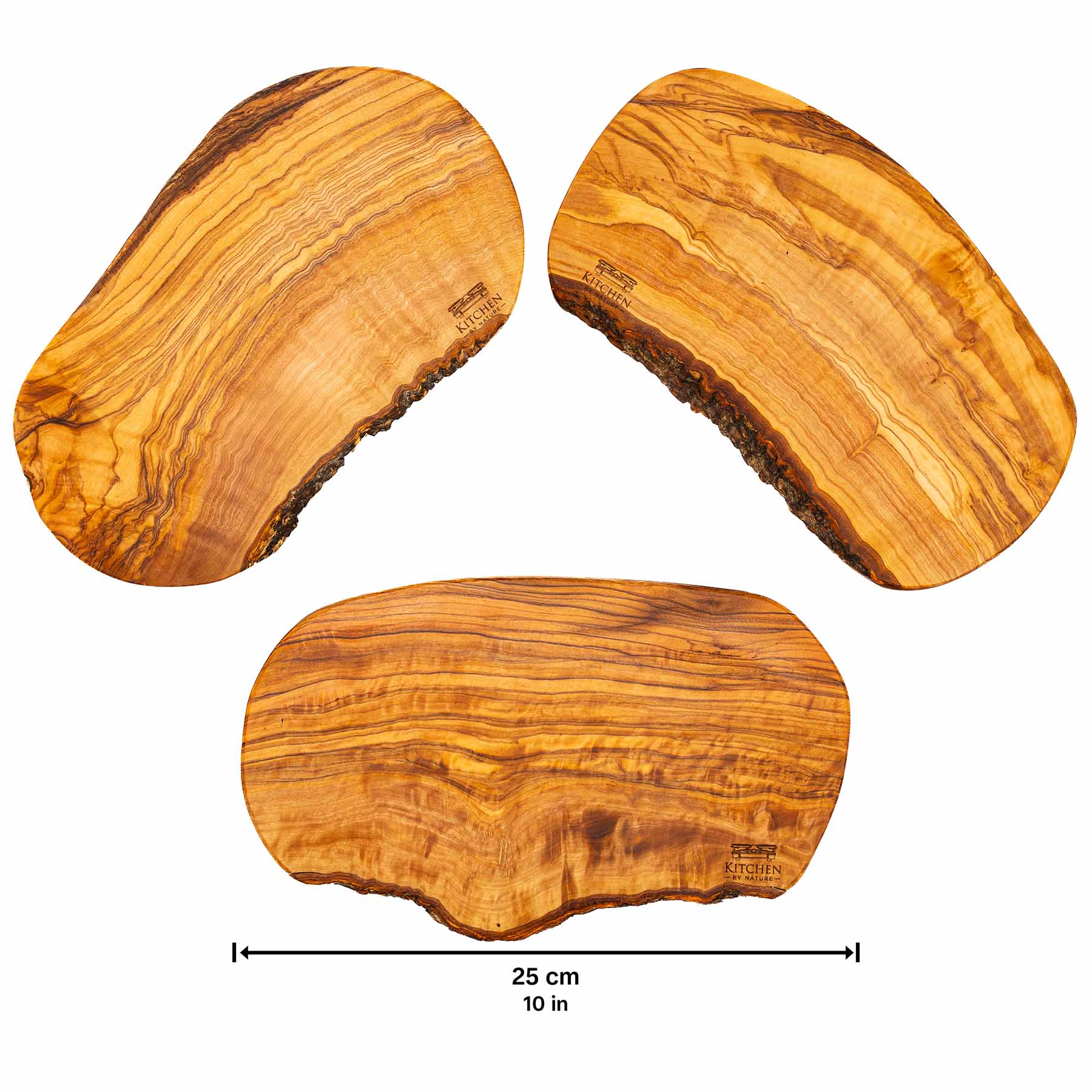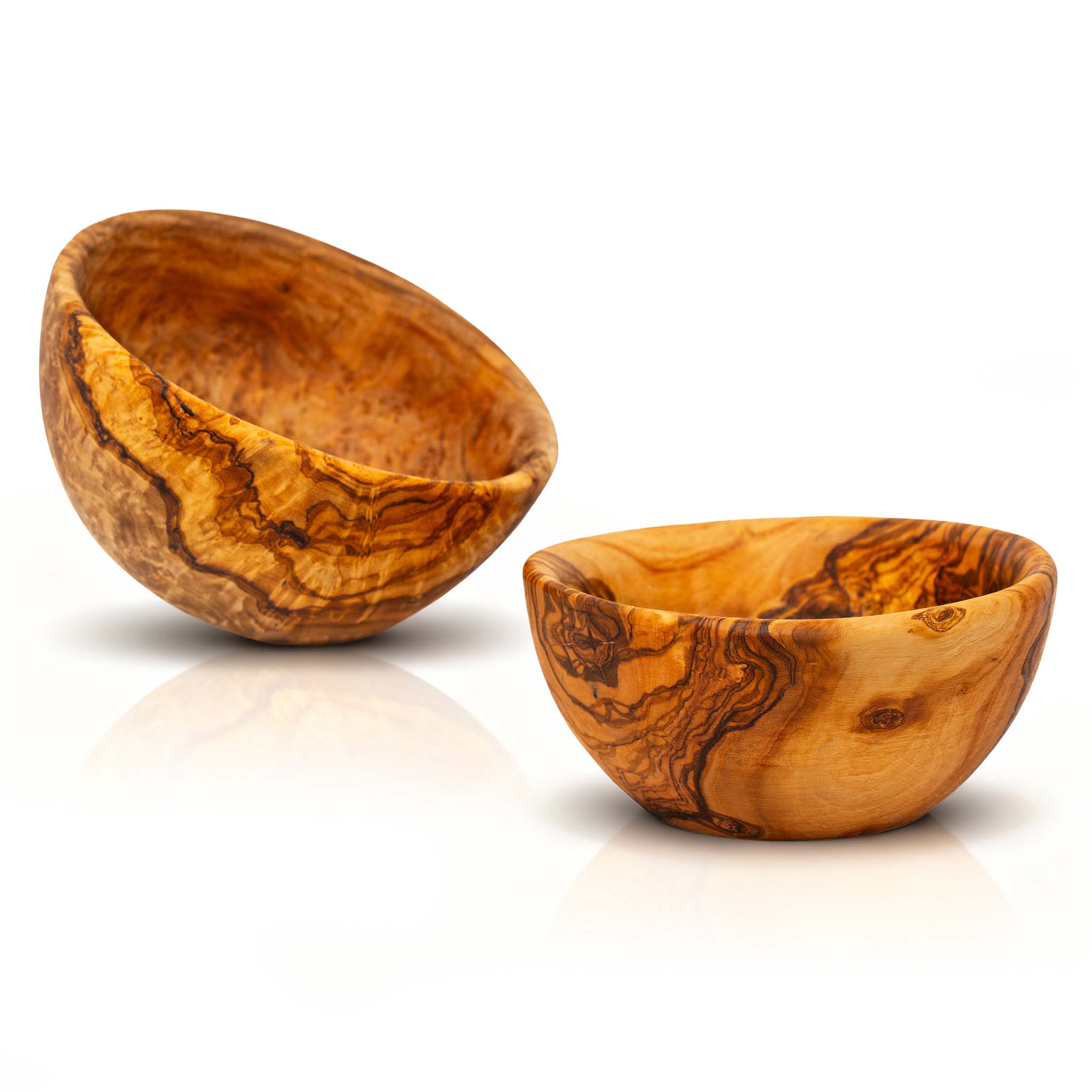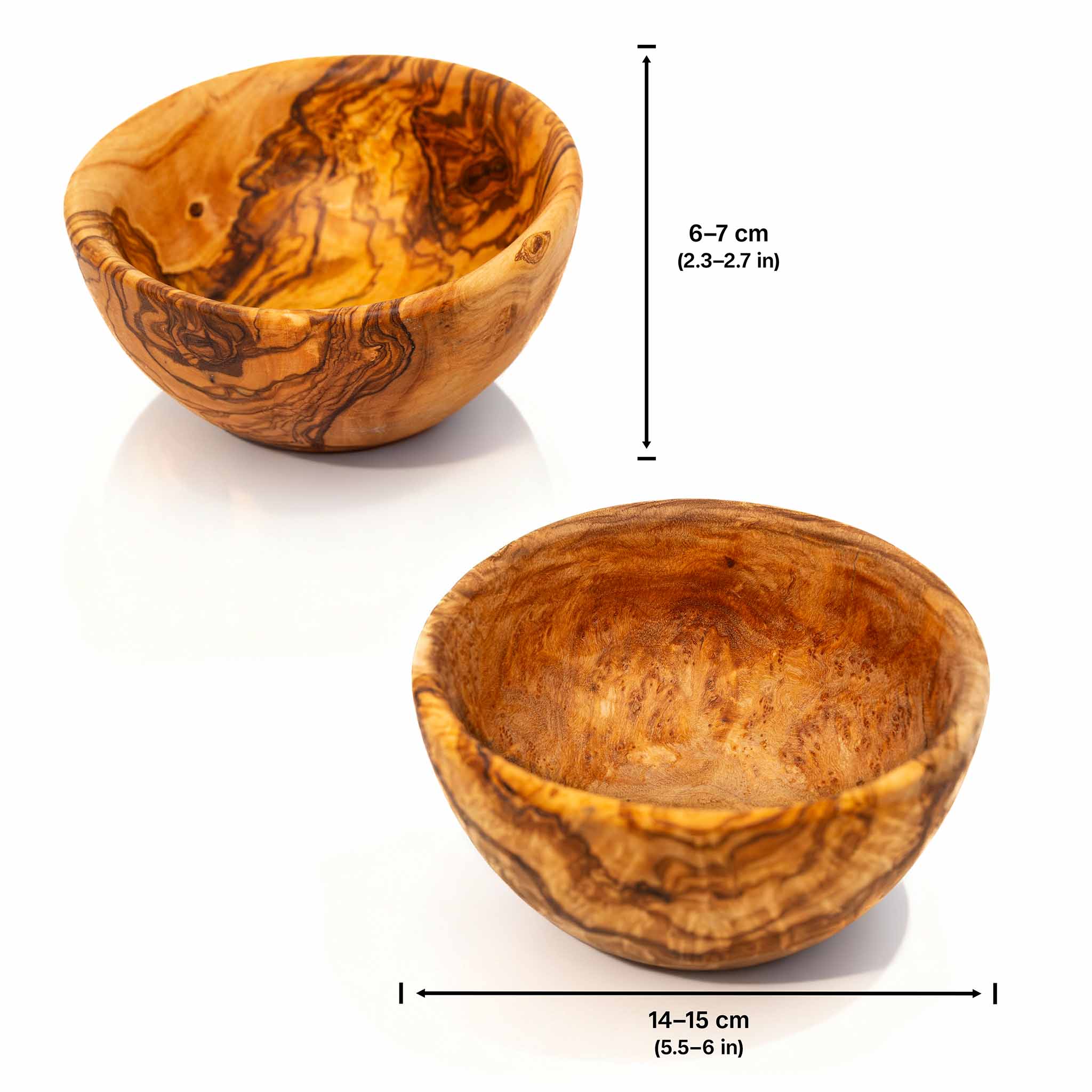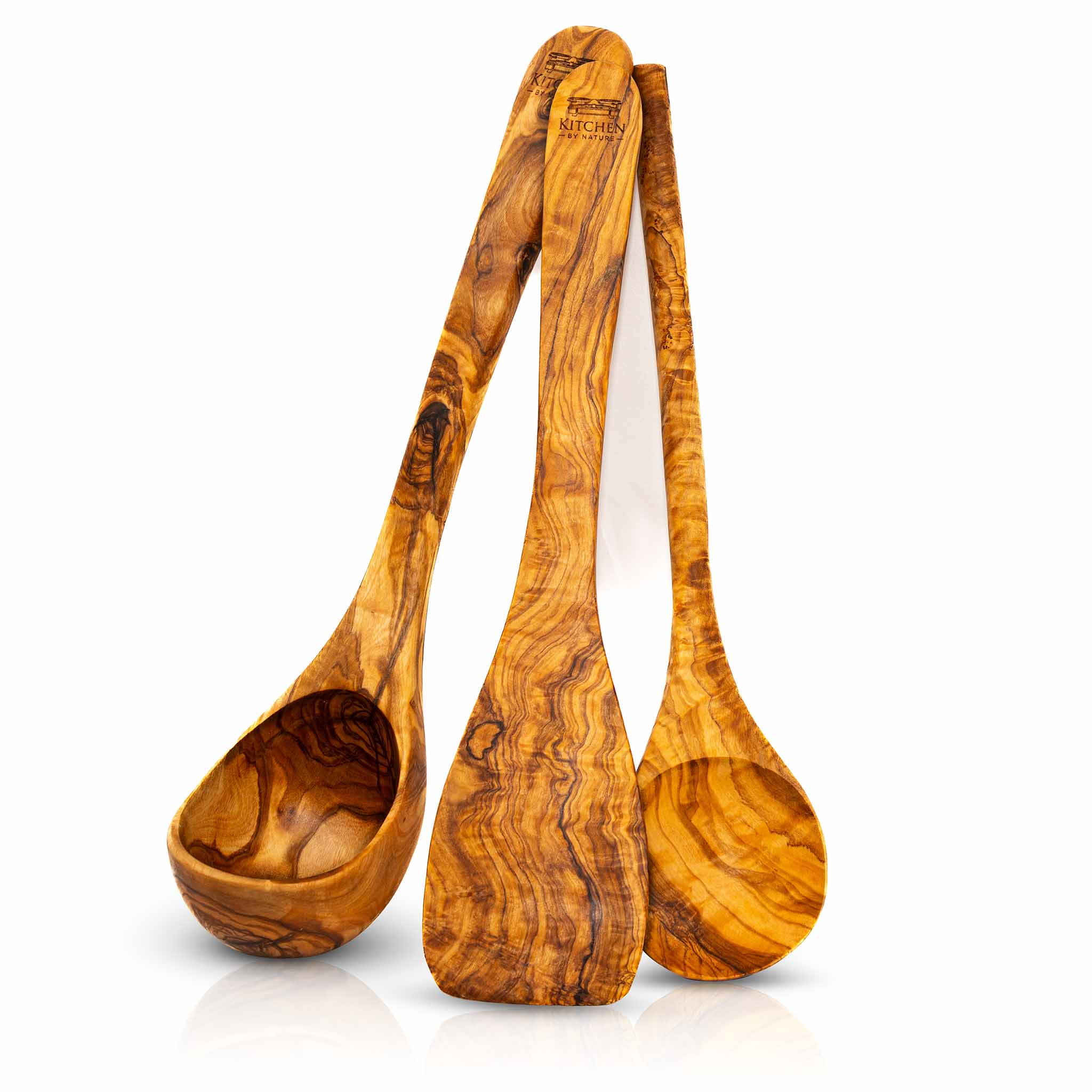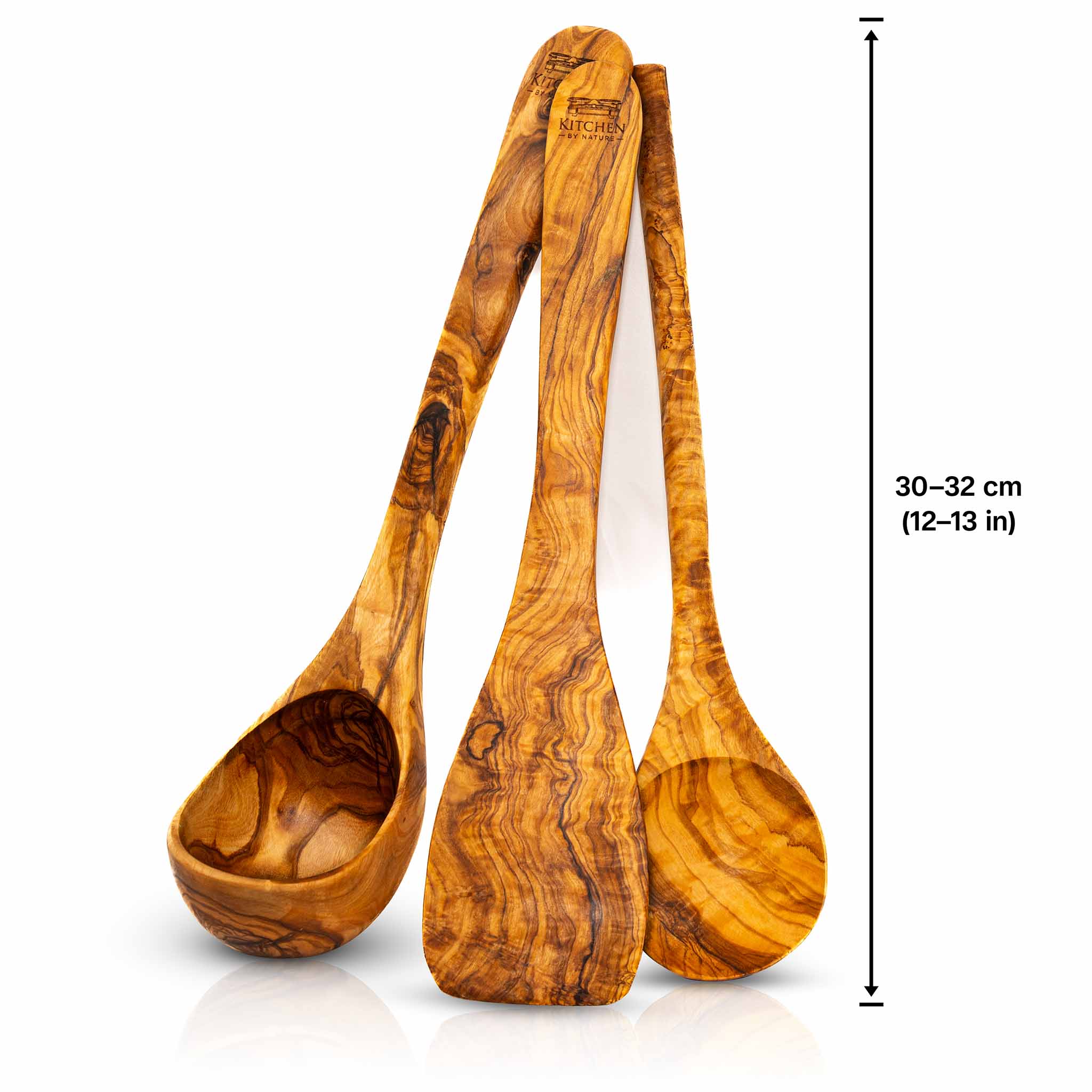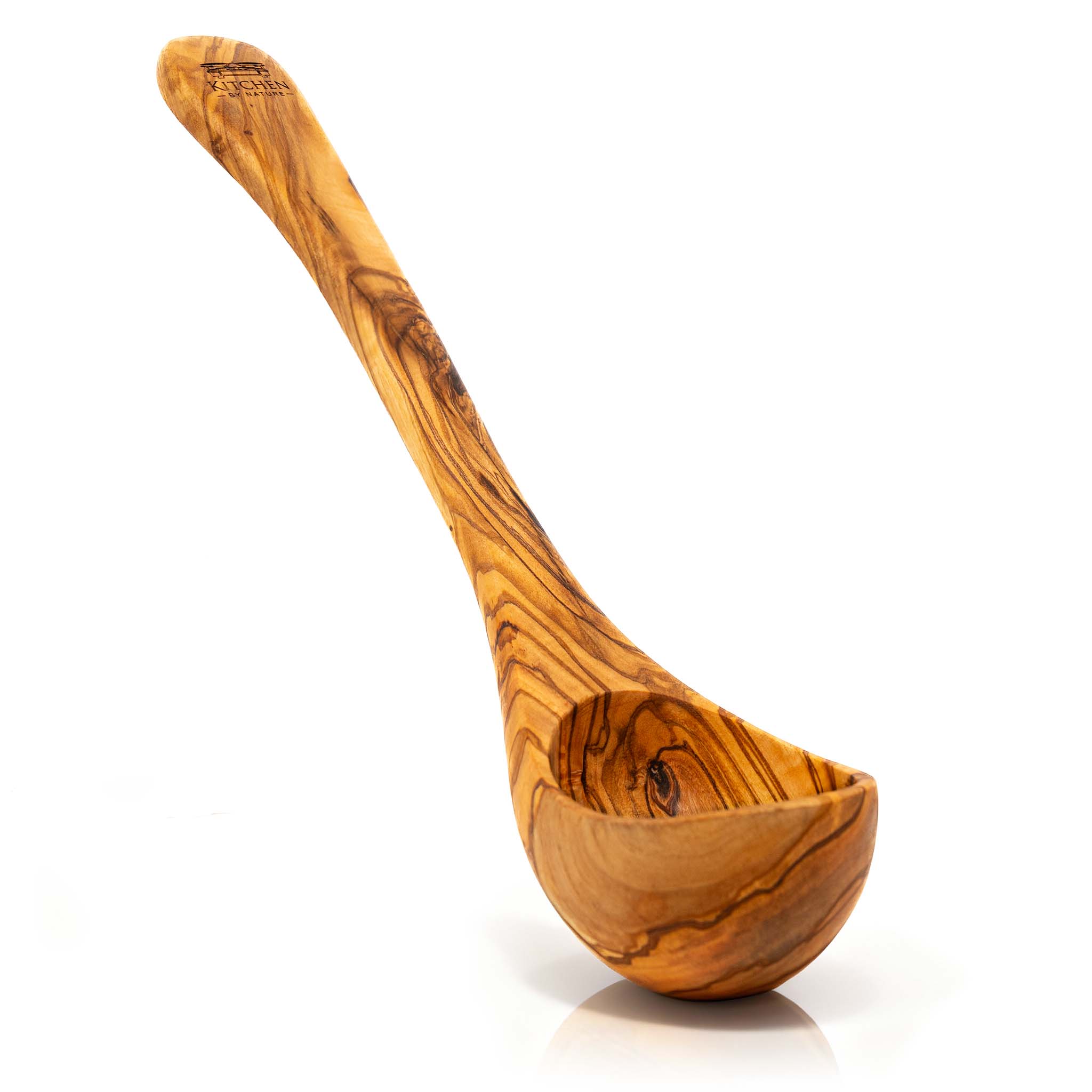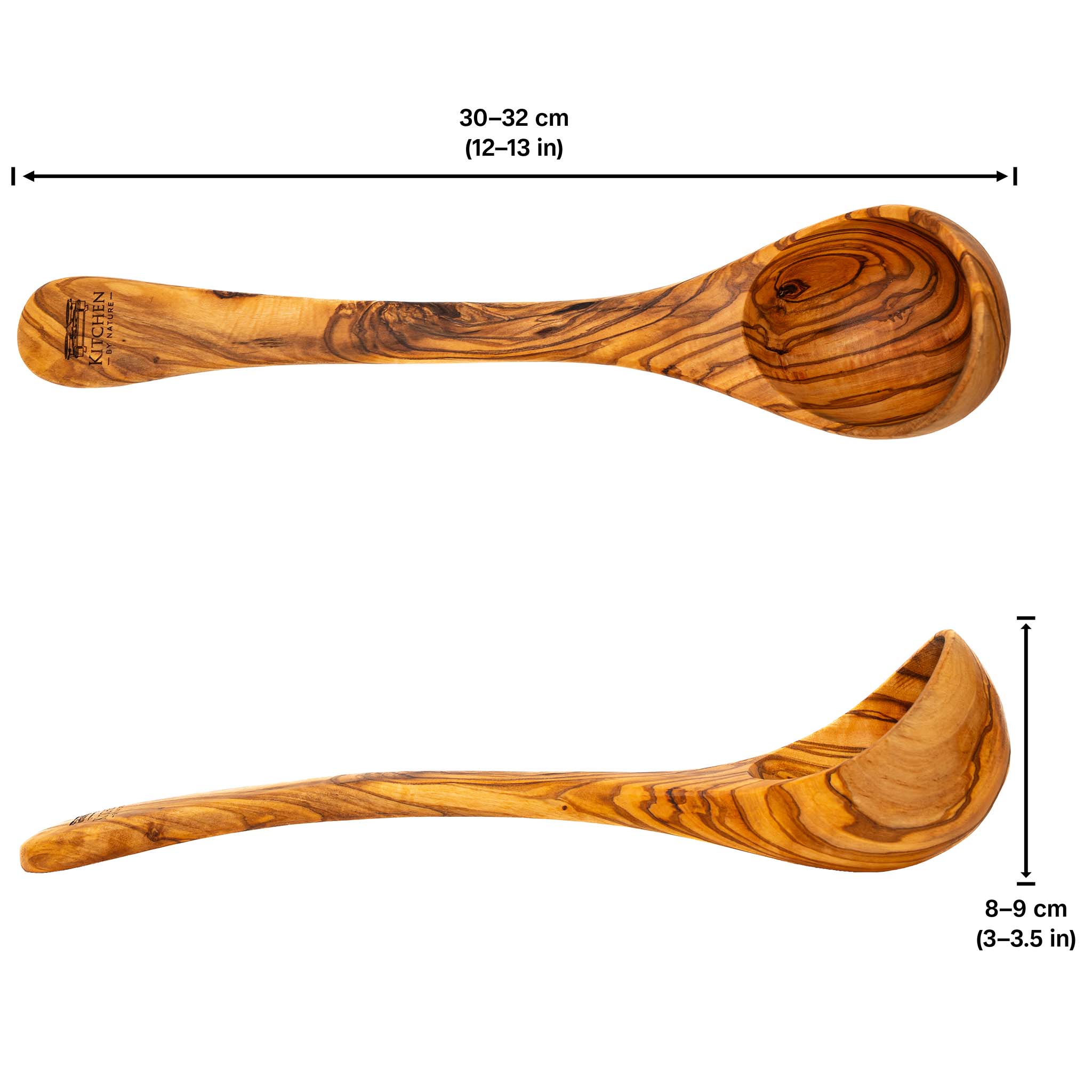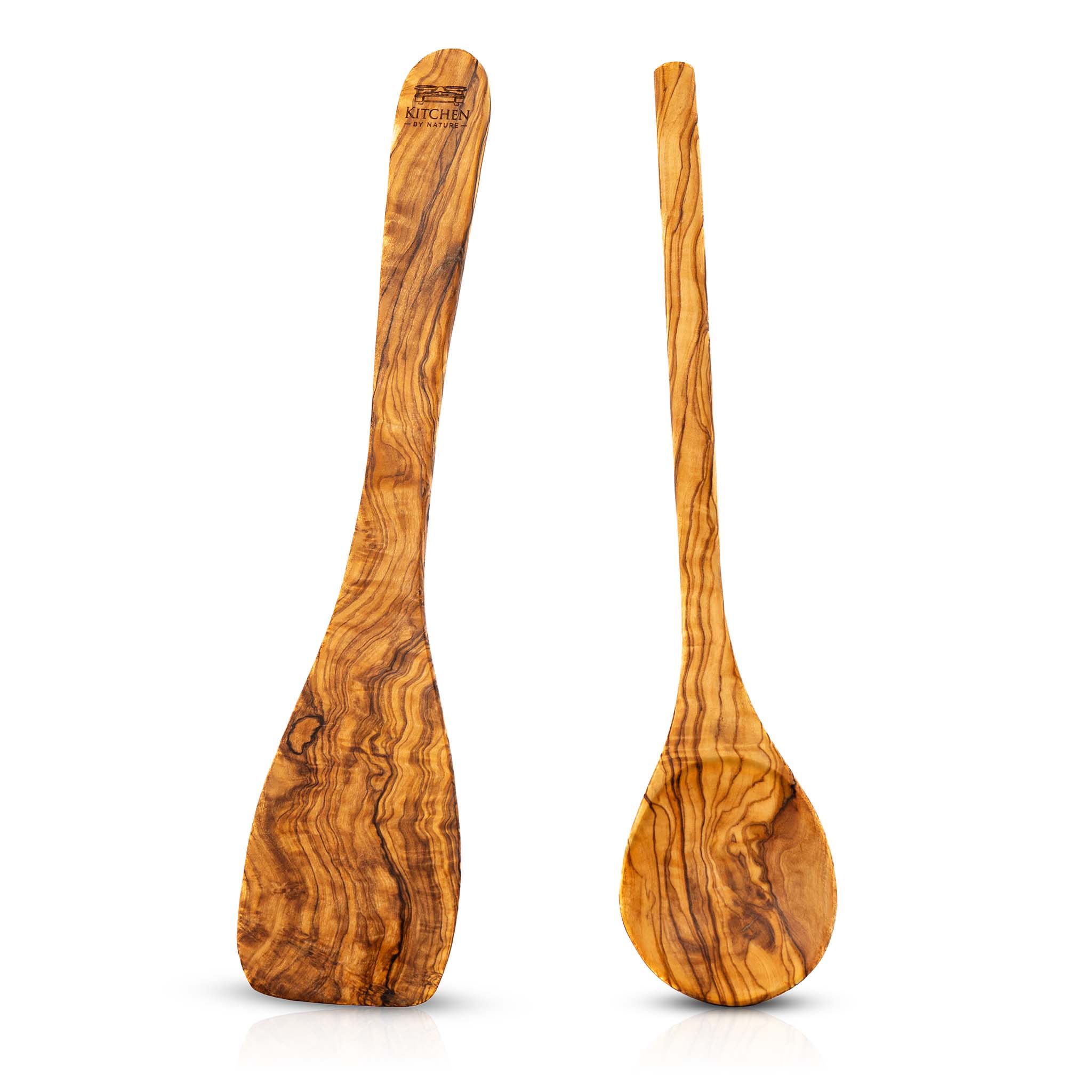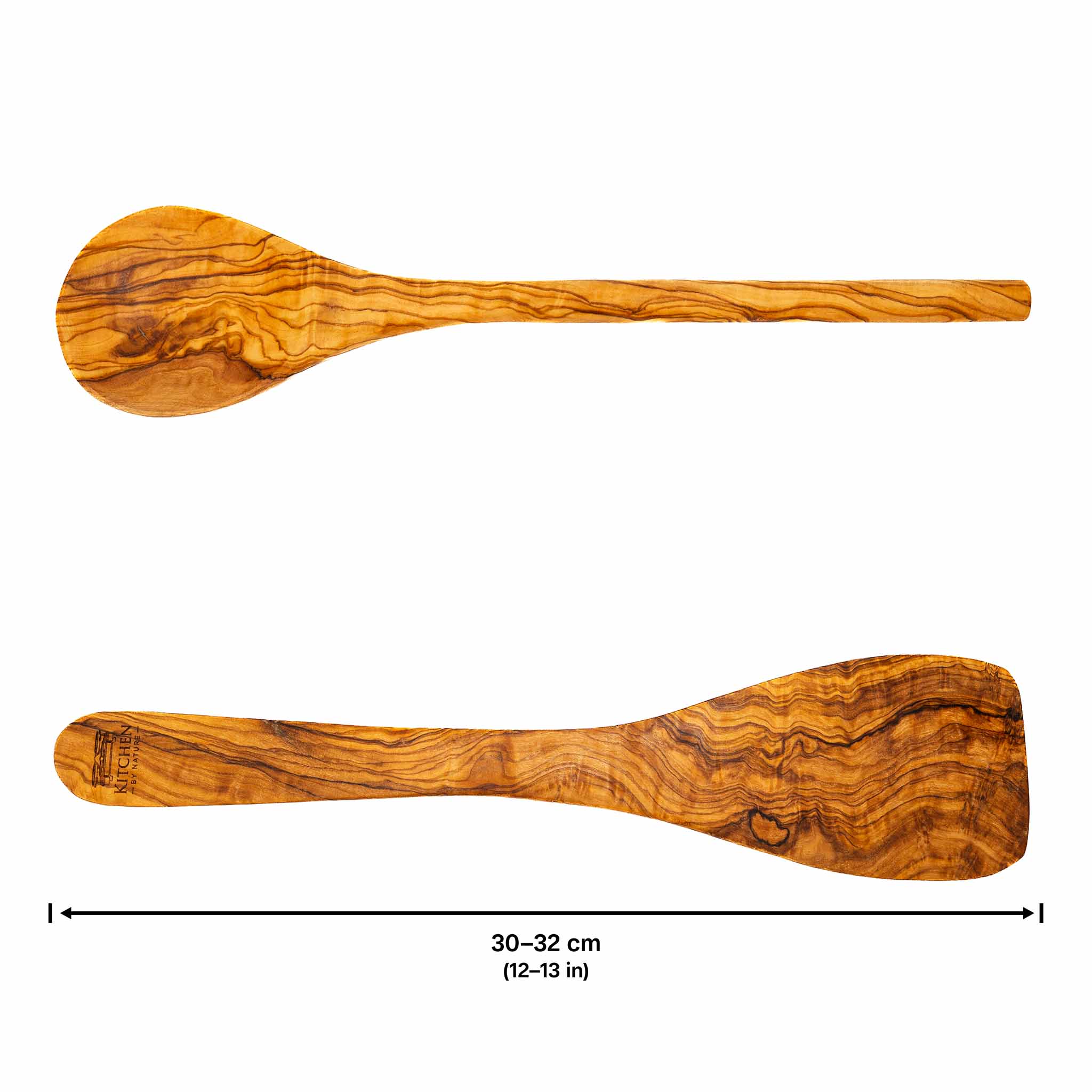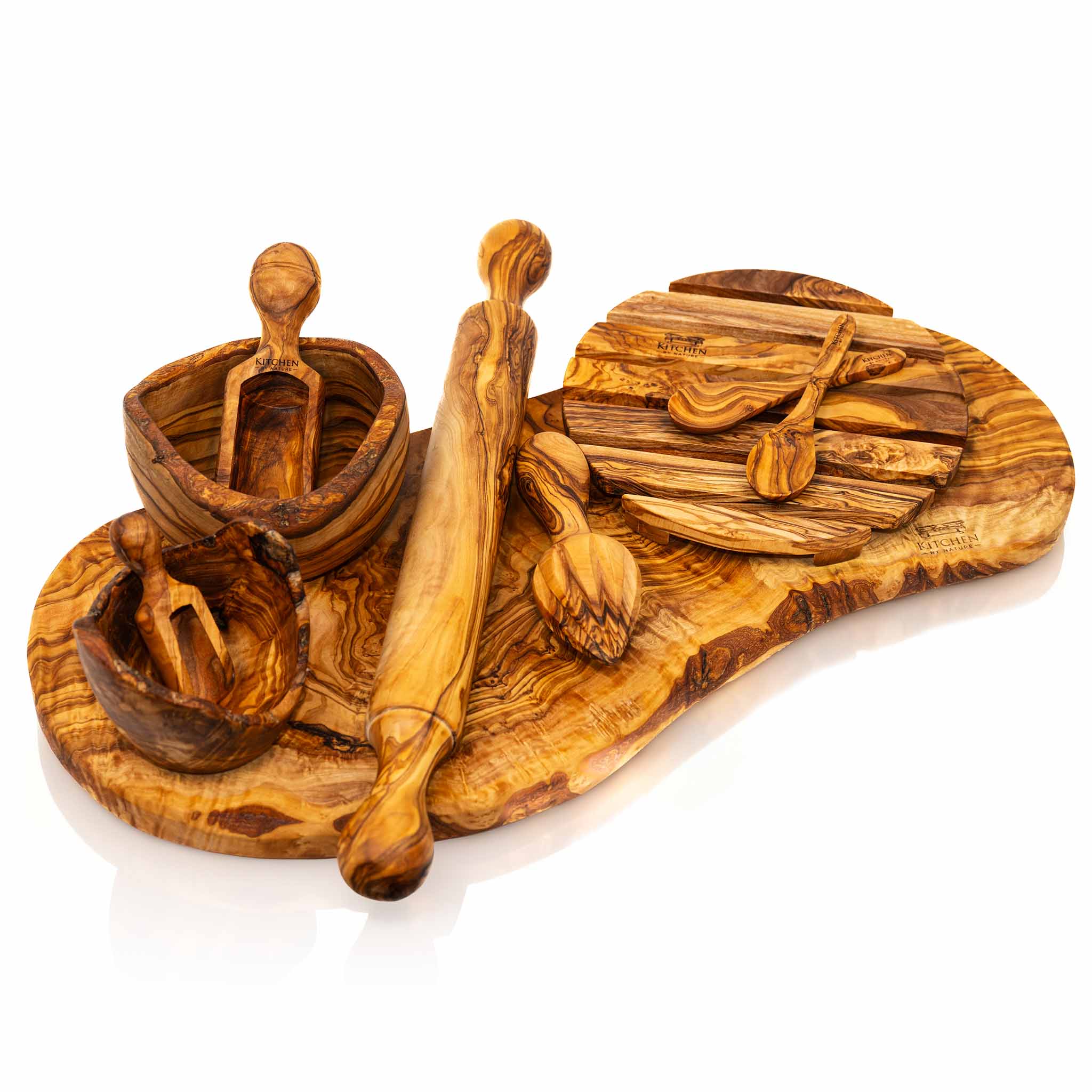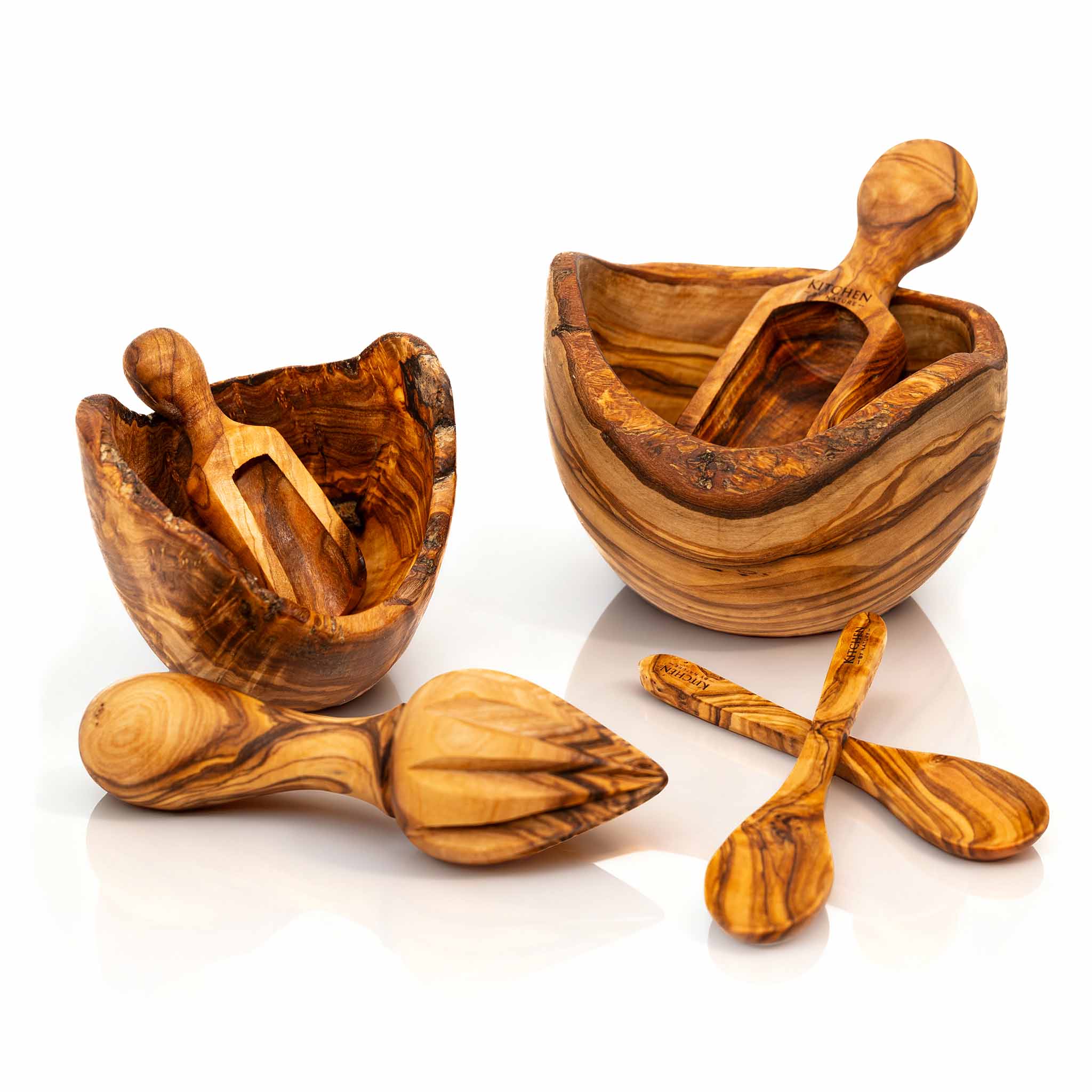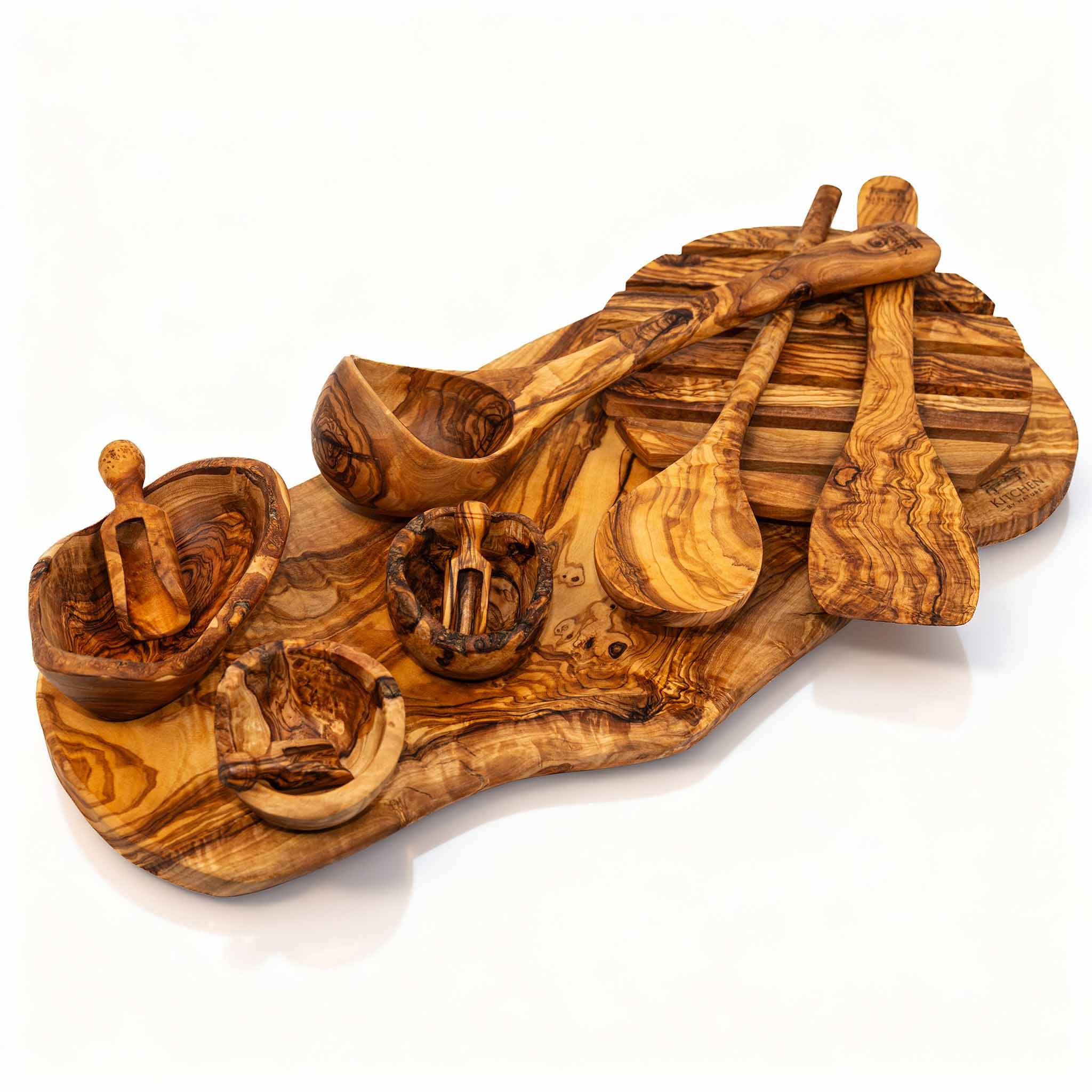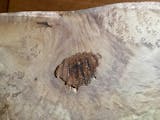 Caroline Meyer
Caroline Meyer
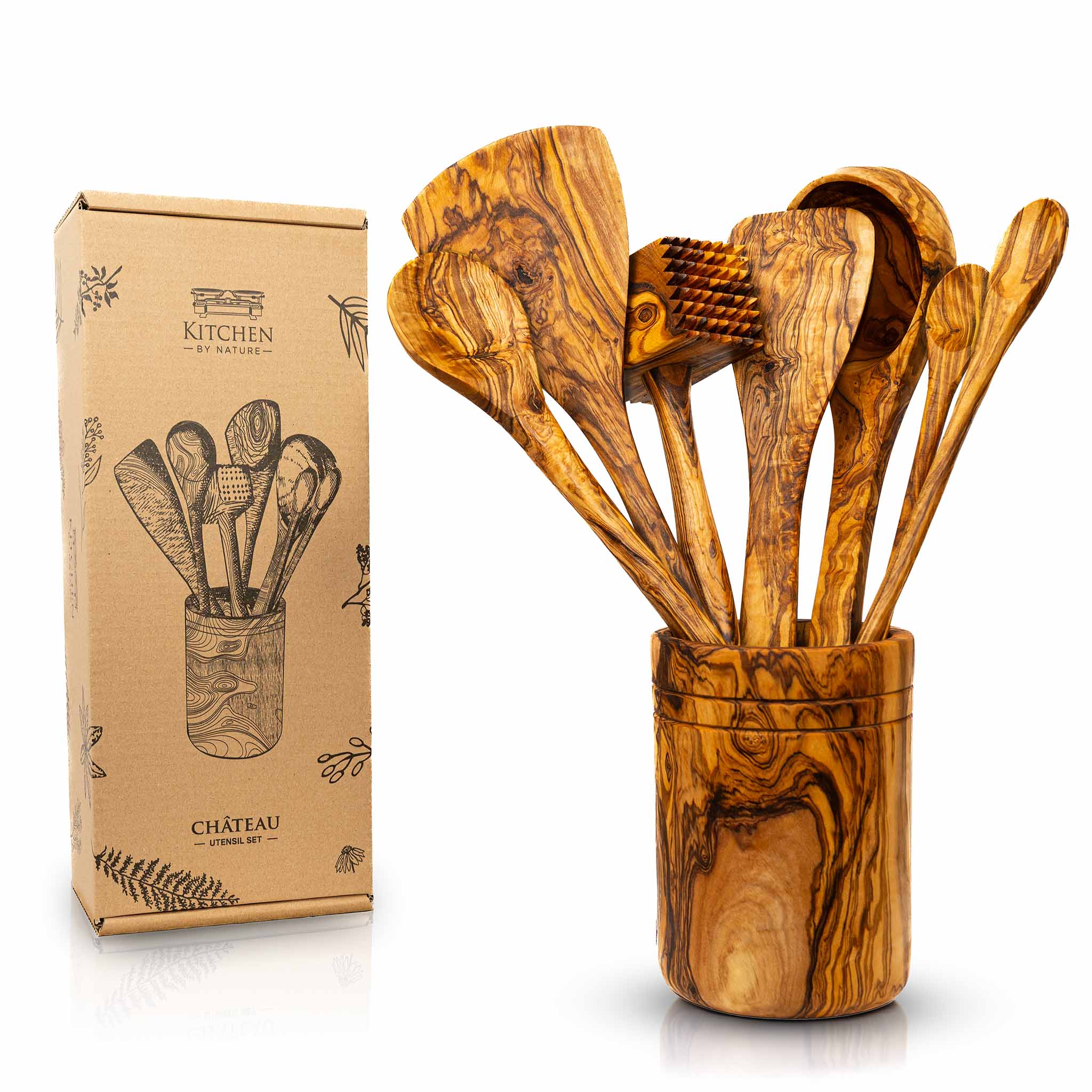
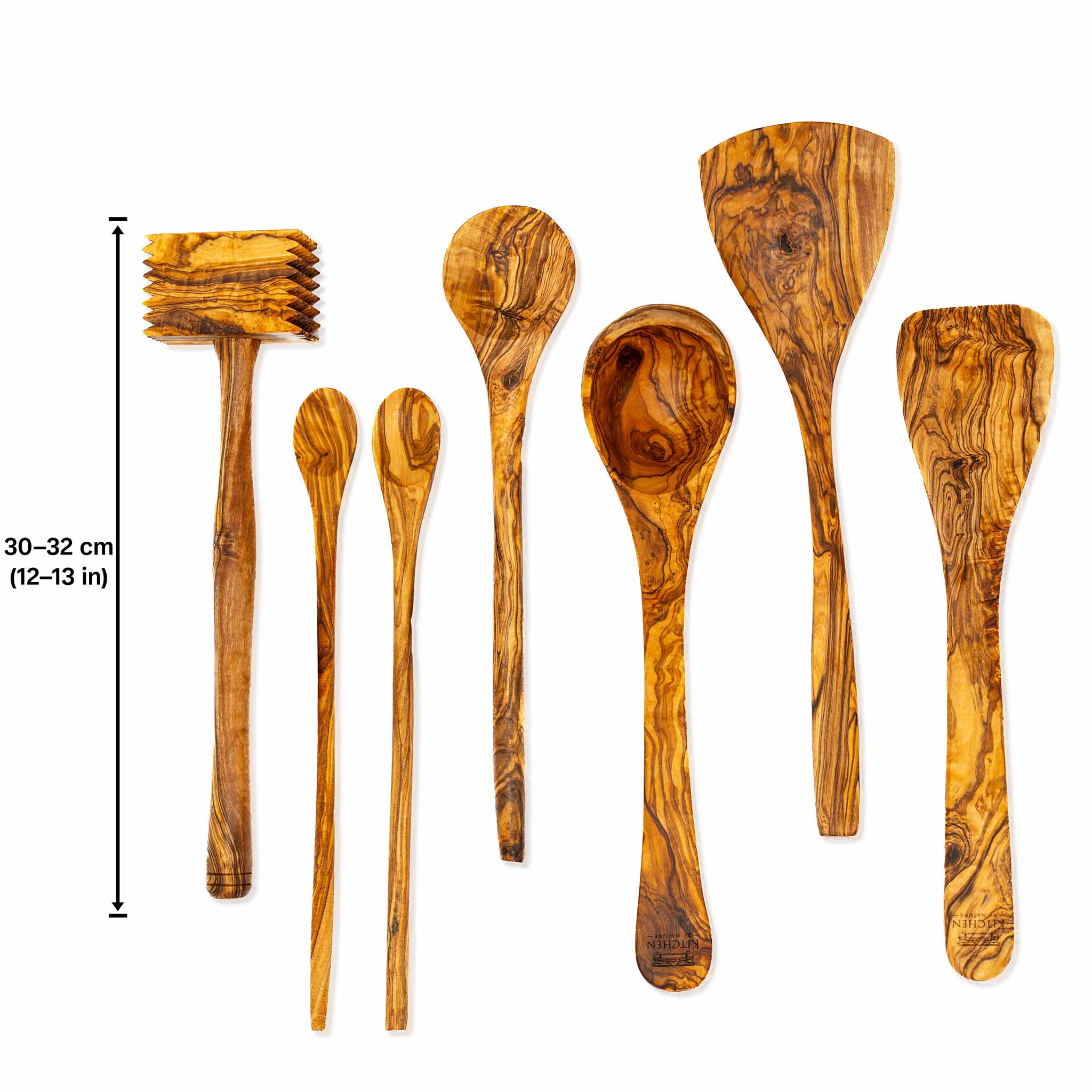
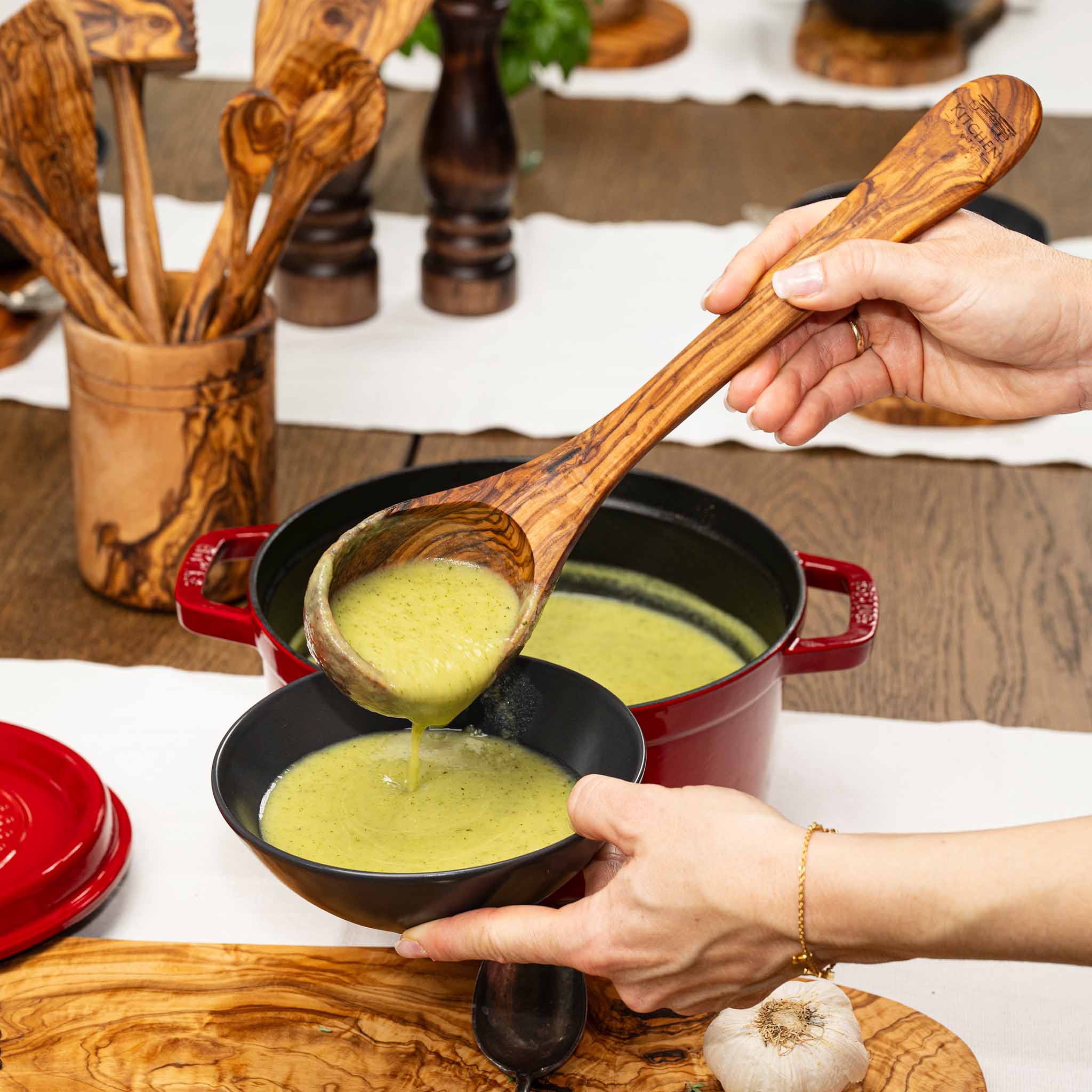
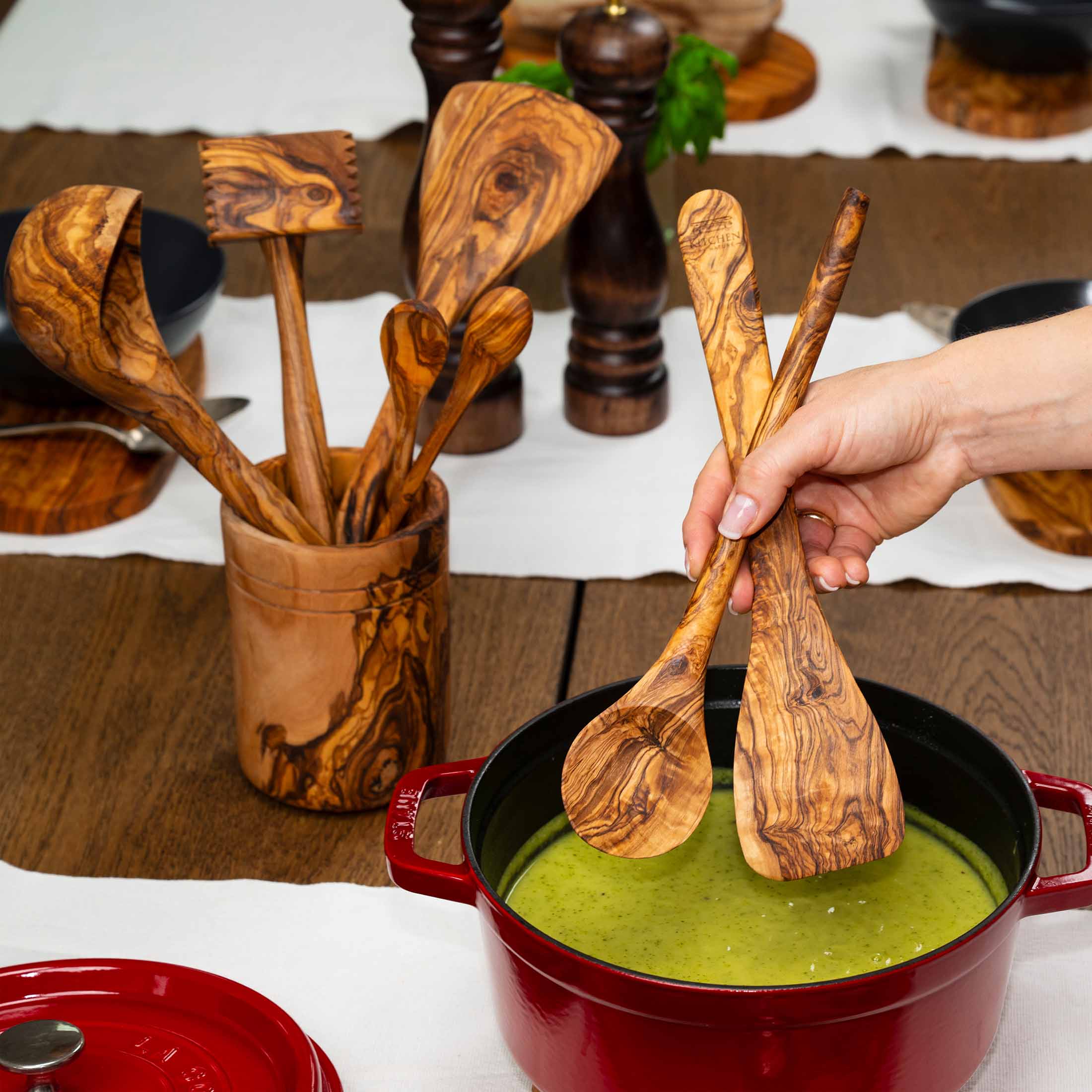
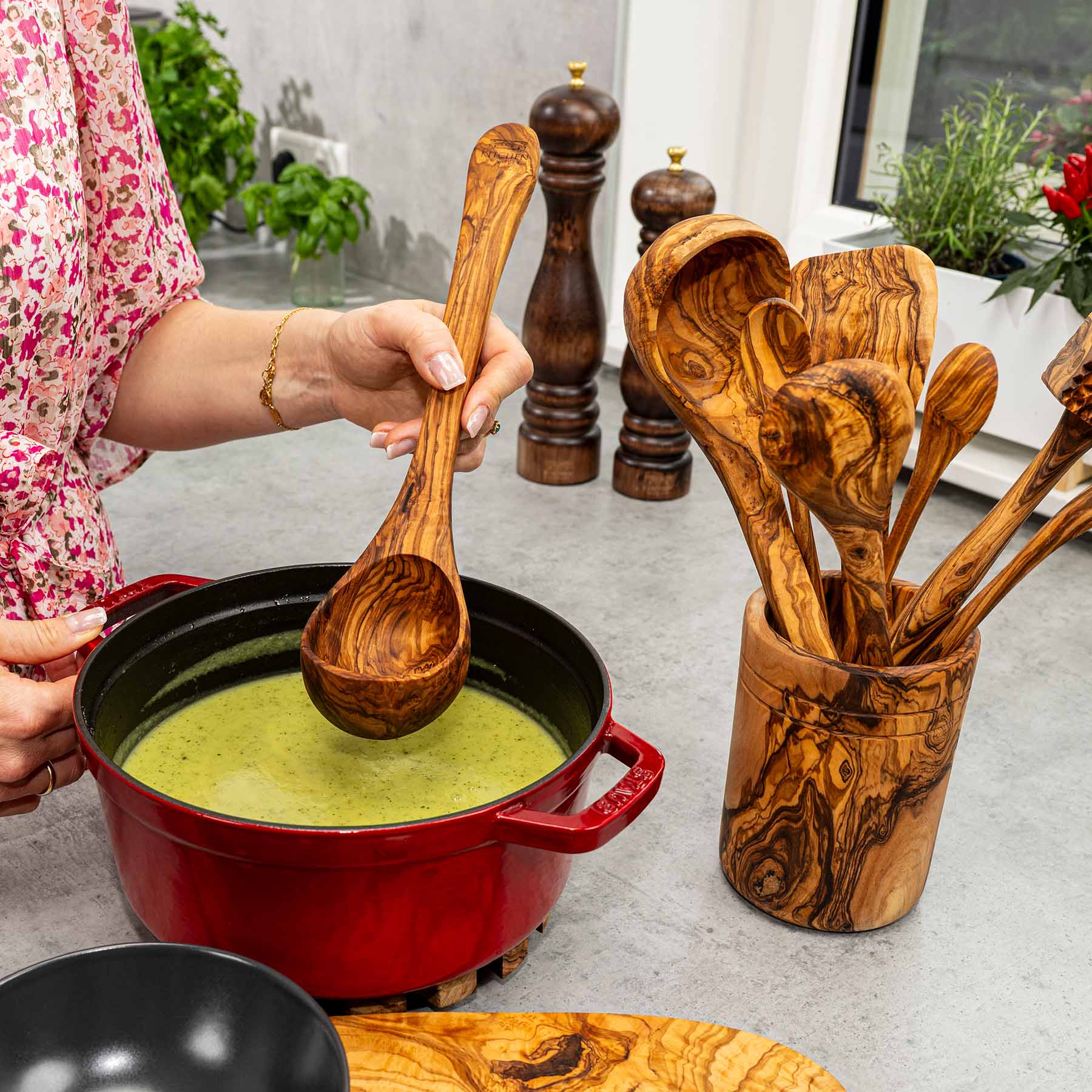
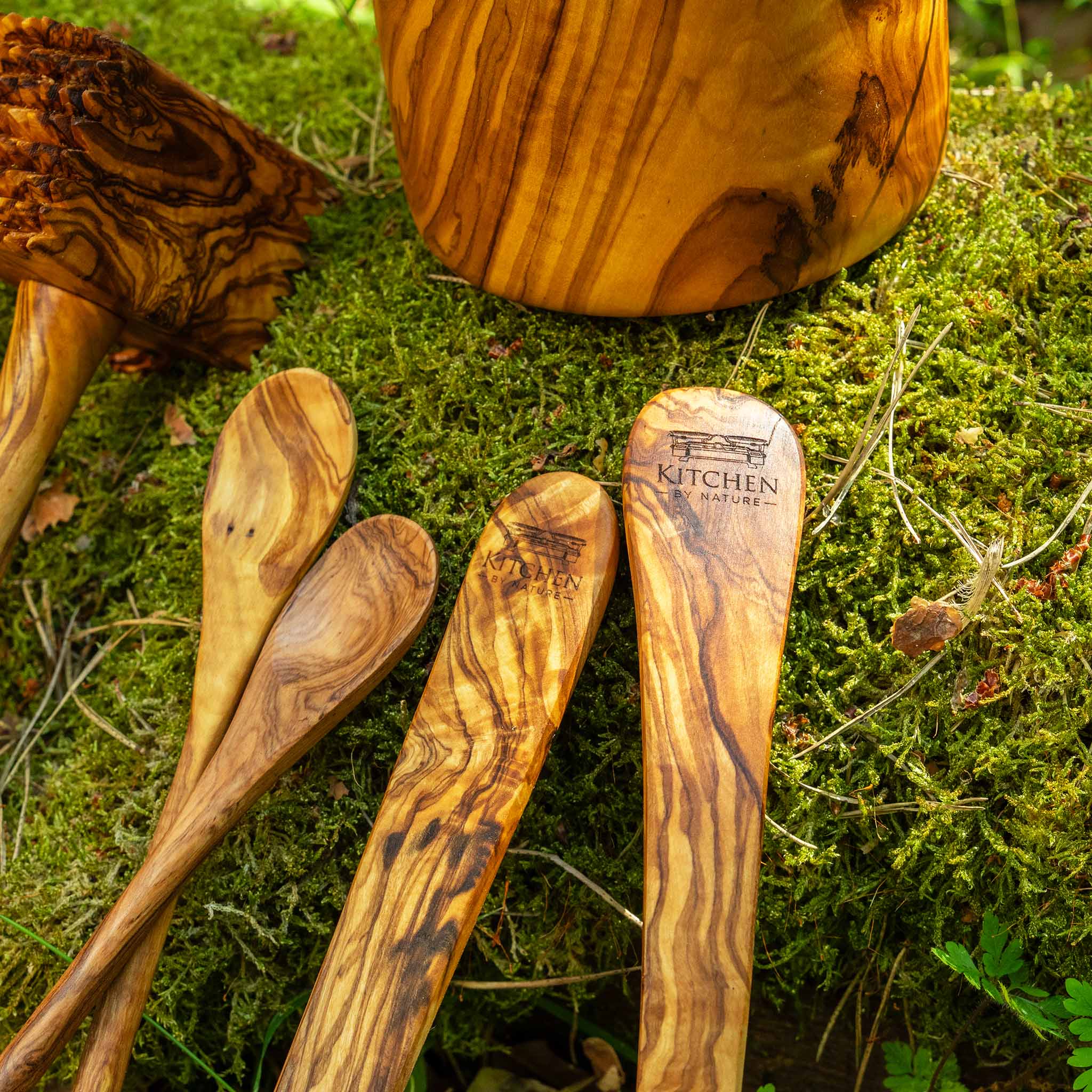
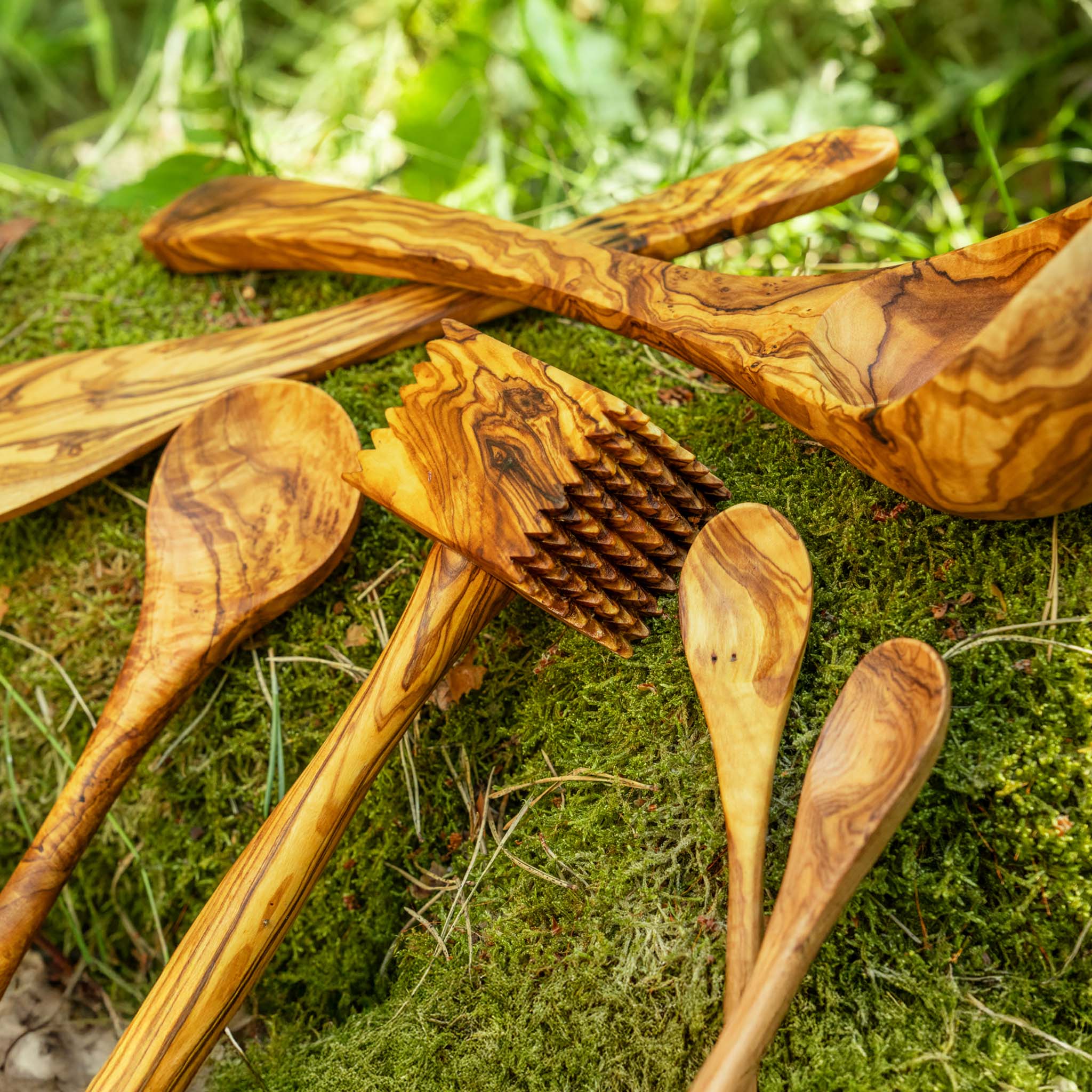
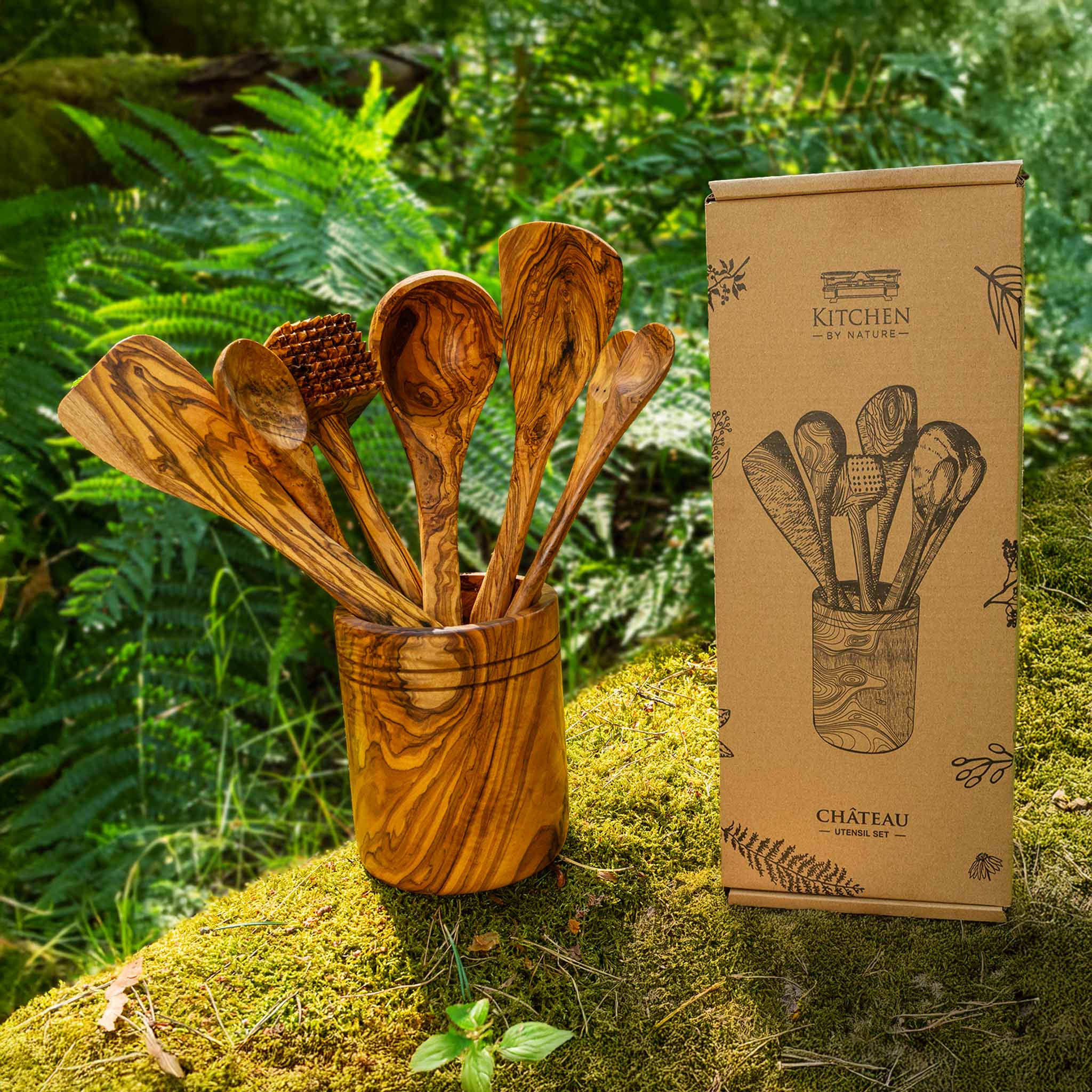
Château Utensil Set
incl. FREE Express Shipping
10–12 Stunden Handarbeit
Auf Lager: in 3-5 Werktagen bei dir


Each piece is crafted with attention to detail and represents the highest quality and durability.
Made from one of the most precious woods, sustainably harvested with respect for nature.
This ensemble with 8 handcrafted olive wood pieces includes:
- 1 storage cup
- 1 large ladle
- 1 meat tenderizer
- 1 cooking spoon
- 1 large spatula
- 1 flat spatula
- 2 narrow spoons with long handles
We want you to make your purchasing decision with confidence. You can return your order within 30 days without needing to provide a reason. Simply contact us via our contact form, and we will respond within one business day.
Additionally, we offer a 2-year warranty on all our products for material and workmanship defects.
You can find more details about the warranty conditions and returns on our Questions & Answers page.
Olive wood is one of the world's most exclusive natural materials. It is particularly robust, cut-resistant, heat-resistant, and naturally antibacterial. Due to its density, it does not absorb liquids or odors, keeping the taste and aroma of your food unaltered.
Our products are made from 100% natural material and are refined exclusively with olive resin and olive oil.
Our wood comes from the Sfax region in Tunisia, where centuries-old trees are sustainably processed after the end of their olive production.
Choose options








Proven in restaurant kitchens
In my kitchen, quality and consistency matter... exactly what I find in this olive wood cutting board. I use it every day, whether for cutting bread or preparing our dishes. For me, it simply belongs in the kitchen, just like the mountain view outside my window.
So says Mareike Auer, innkeeper of the “Alpenblick” guesthouse
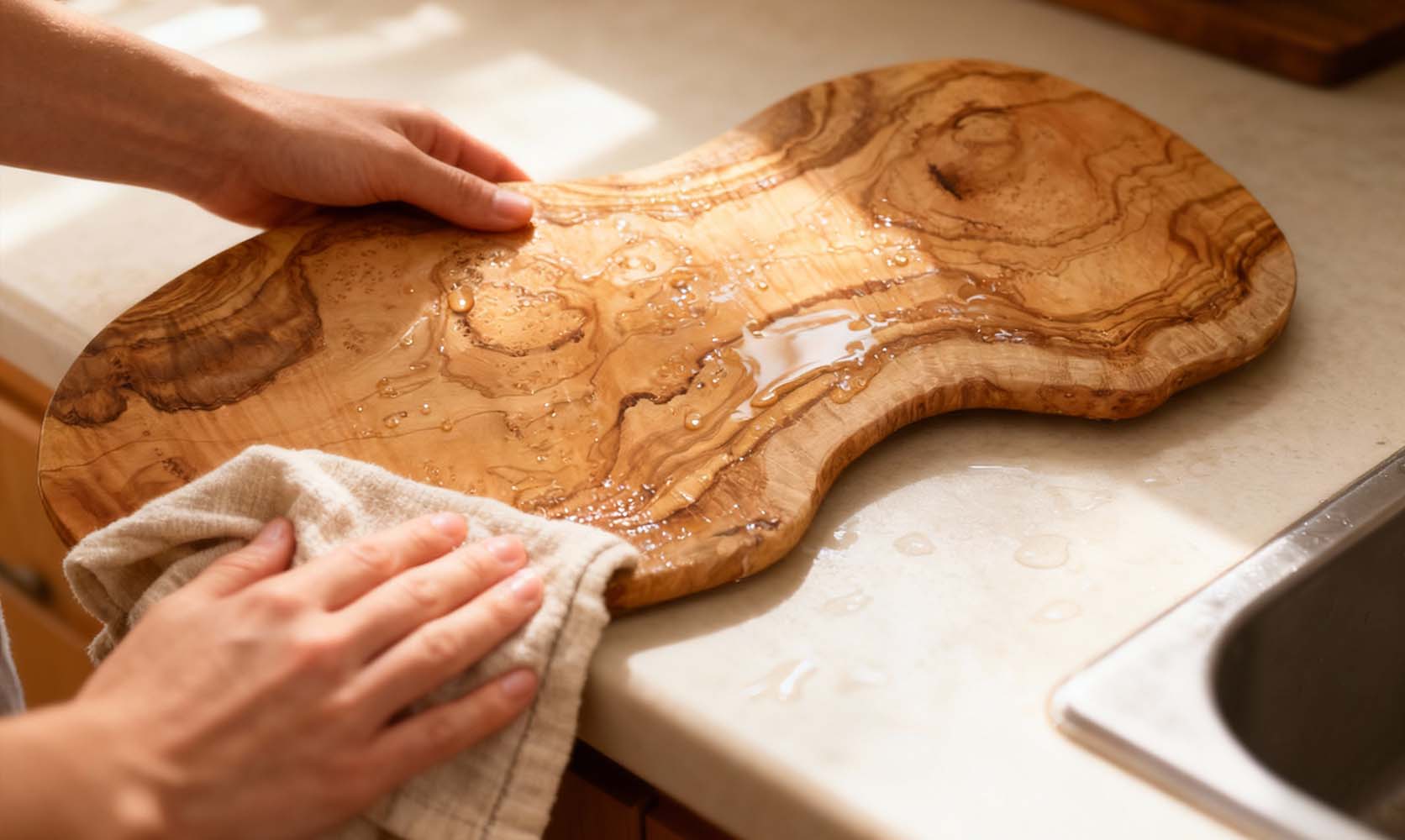
Healthier thanks to olive wood
Naturally antibacterial
Olive wood is one of the hardest woods in the world and is particularly hygienic because its especially dense surface repels moisture and bacteria. Studies show that germs die off on olive wood within minutes.
Kitchen utensils made of olive wood are durable, antibacterial, and easy to care for. Simply clean with mild soapy water and occasionally treat with olive oil.
What customers say
Automatically translated · may contain errors
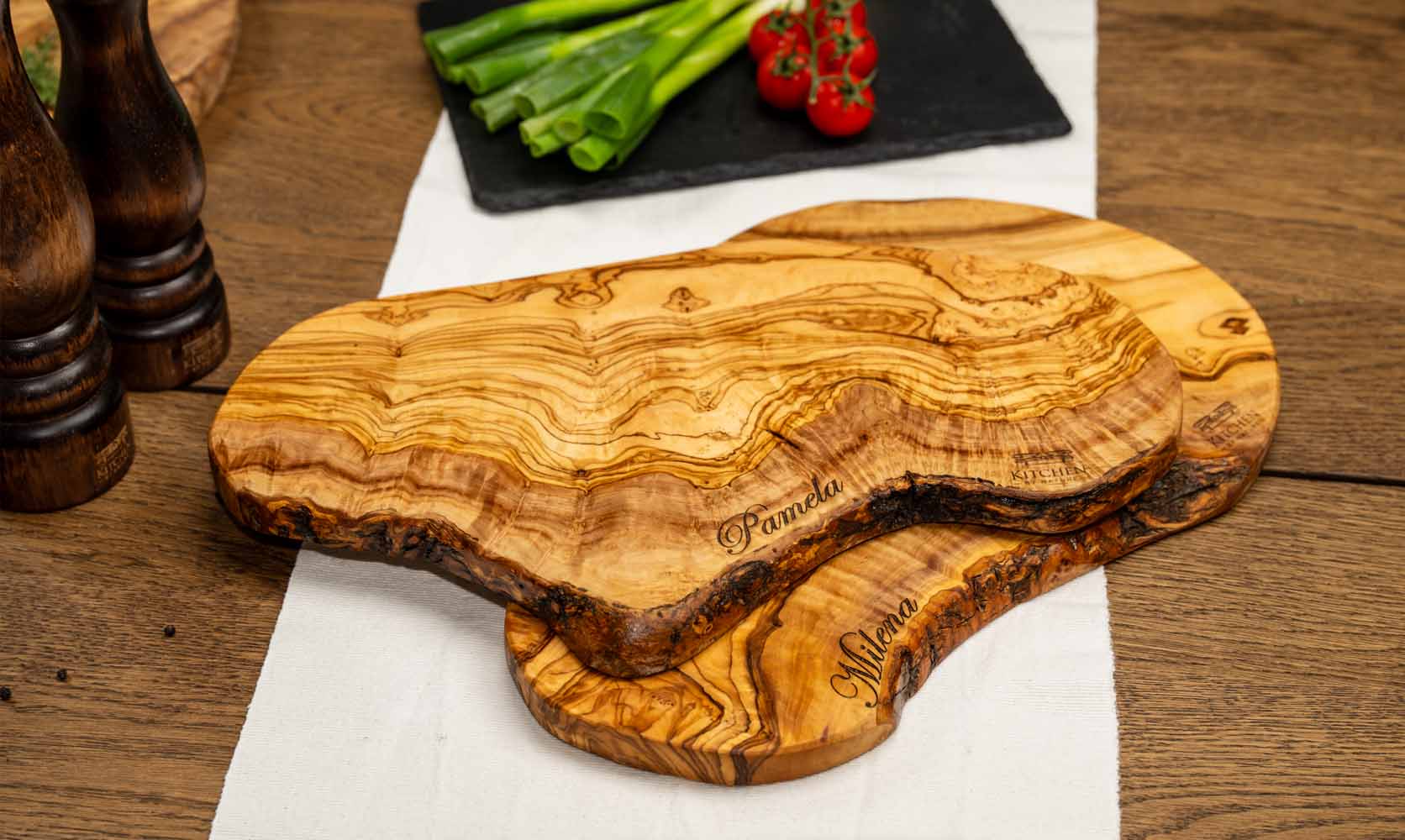
The most beautiful gift
Personalized engravings
Do you want to give something with an engraving? Personalize your purchase with a name, date, or dedication and create a unique gift with character.
Just write to us via our contact form and tell us your engraving idea.


